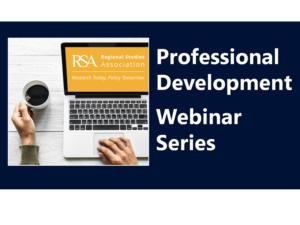
This webinar series offers regular training and support for skills, knowledge and professional development on a variety of topics. The sessions are open to all and free to attend but require registration. Recordings are available on demand via the RSA Lounge.
Follow #RSAWebinar for updates and latest news.
Webinar Series archive
Past webinars from both RSA Webinar series will be available on demand for RSA members via the RSA Lounge. We welcome new members to the RSA. More information on membership benefits and how to join the Association can be found here.
About the RSA
The RSA is the global community for regional and urban research, development and policy. As a learned society for regional studies, it provides an authoritative voice for researchers, students and practitioners from disciplines including economics, geography, political science, planning, urban sociology, transport planning and other fields. The RSA delivers its charitable aims through knowledge exchange and policy engagement activities, its portfolio of journals and publications, its programme of conferences and events and its worldwide territorial and research networks. The RSA also runs a grant funding programme and recognises good practice in regional studies through its awards. It is an inclusive, diverse and environmental responsible organisation. For more information go to www.regionalstudies.org
Forthcoming Webinars:
How to Enhance your Research: Tips for Academics
Session Description:
Academia, while immensely rewarding, can be a pretty tough gig, particularly for junior researchers. This professional development webinar draws on years of experiences across countries and institutions and different levels of seniority to highlight practices that help individual academics to become more productive researchers. These practices make an institution’s research culture more effective, productive and inclusive, with considerable mutual and cumulative benefits.
Speaker:
Don Webber, Sheffield University Management School, UK
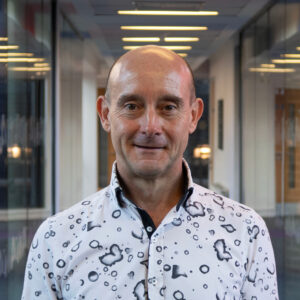
Don Webber is Head of Entrepreneurship, Strategy and International Business and Professor of Managerial Economics at Sheffield University Management School, UK. He has published over 100 refereed academic journal articles and led or collaborated on £2.3m worth of grant-funded research. Don’s current research challenges our understanding of regional growth and development and develops our understanding of the academic research ecosystem. On the latter, he is very interested to learn what enables you to achieve your research potential.
Chair:
To be confirmed
Time and Date
Wednesday 18th March 2026
12pm GMT / 1pm CET
Browse past webinars below, bundled by topic:
Academic Writing and Publishing
Are you about to write your first academic article? The presenter in this webinar shares step by step advice on how to start your academic paper, a formula for how to write a paper and a series of tips on how to succeed in academic writing. This is then followed by a short Q&A part answering many common questions when writing an academic paper.
Keywords: academic writing, journal paper, publishing, academic skills
Presenter: Marcin Dąbrowski, TU Delft, The Netherlands
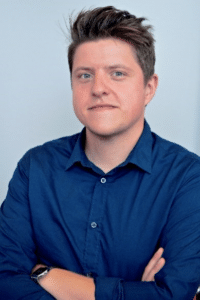
Marcin Dąbrowski is an assistant professor at the Department of Urbanism, Faculty of Architecture and the Built Environment, Delft University of Technology. In the past he worked as a researcher at the University of Strathclyde (EPRC), the University of Vienna and as a consultant for the OECD. His research interest span across many topics related to governance of territory, from regional strategies for circular economy (H2020 REPAiR), to governance of urban climate change adaptation policies and Europeanisation of spatial planning (ESPON COMPASS). He has also published extensively on EU Cohesion Policy (e.g. H2020 COHESIFY). He is the lead editor of the Early Career Section of Regional Studies, Regional Science journal and co-organiser of the Regional Studies Association’s Research Network on EU Cohesion Policy. His academic achievements brought him several personal grants and awards (e.g. Urban Studies Foundation Postdoctoral Fellowship, Urban Knowledge Network Asia fellowship, RSA Early Career Excellence Award).
Chair: Sabrina Lai, University of Cagliari, Italy
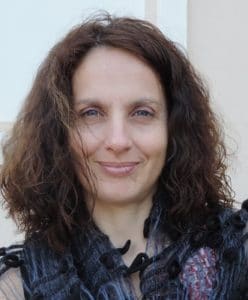
Sabrina Lai is an assistant professor at the Department of Civil and Environmental Engineering and Architecture of the University of Cagliari, Italy. She received her Ph.D. in Regional and Urban Planning from the University of Cagliari (Italy) in 2009 and her MSc in International Planning & Development from Cardiff University (UK) in 2007. Her research interests and publications focus on environmental planning and relationships between spatial planning and preservation of natural resources at the regional scale, spanning from land-cover/land-use analyses to ecosystem services assessment and their integration into planning, from institutional tools for biodiversity conservation (prominently, natural protected areas and green infrastructures) to environmental assessments. In the past she worked as GIS consultant for private companies and, for over ten years, as a planning officer at the Department for the Environment of the Autonomous Region of Sardinia. She is presently an editor of “Regional Studies, Regional Science” (Early Career Section), the open access journal of the Regional Studies Association.
In this webinar you will gain expert insights and tips from editors in chief and the publishing industry on how to best position your journal paper to maximise visibility, discoverability and thus the reach of your research. You will learn what search engine optimisation (SEO) is and why it is important for researchers and gain tips on writing titles, abstracts and keywords to maximise discoverability online once published.
Keywords: academic writing, journal paper, publishing, academic skills, SEO, keywords, discoverability, impact
Speakers:
 Kevin Ward is a Professor of Human Geography and Director of the Manchester Urban Institute at the University of Manchester. He has published numerous books and journal articles over the years. Currently he is editing a book with others, entitled Infrastructuring Urban Futures, as well as researching and writing on US municipal finance under COVID 19. Kevin is the current editor in chief at Urban Geography.
Kevin Ward is a Professor of Human Geography and Director of the Manchester Urban Institute at the University of Manchester. He has published numerous books and journal articles over the years. Currently he is editing a book with others, entitled Infrastructuring Urban Futures, as well as researching and writing on US municipal finance under COVID 19. Kevin is the current editor in chief at Urban Geography.
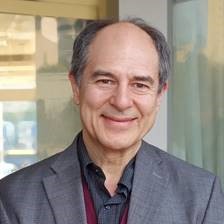 Alan A. Lew is Professor Emeritus in the Department of Geography, Planning, and Recreation at Northern Arizona University. His academic background covers the fields of human geography, urban planning, and tourism studies. He is the founding editor-in-chief of the Tourism Geographies journal (Routledge, UK); he has written over 100 journal articles and book chapters, along with several books, including Tourism Geography, 3rd ed. (2014), and World Regional Geography, 2nd ed. (2015). Dr. Lew is a Fellow of the International Academy for the Study of Tourism and a member of the American Institute of Certified Planners. His research interests and writings focus on tourism across East and Southeast Asia.
Alan A. Lew is Professor Emeritus in the Department of Geography, Planning, and Recreation at Northern Arizona University. His academic background covers the fields of human geography, urban planning, and tourism studies. He is the founding editor-in-chief of the Tourism Geographies journal (Routledge, UK); he has written over 100 journal articles and book chapters, along with several books, including Tourism Geography, 3rd ed. (2014), and World Regional Geography, 2nd ed. (2015). Dr. Lew is a Fellow of the International Academy for the Study of Tourism and a member of the American Institute of Certified Planners. His research interests and writings focus on tourism across East and Southeast Asia.
Webinar Chair: Sarah Bird (Taylor & Francis, UK)
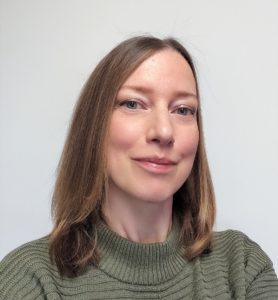 Sarah Bird is a Portfolio Manager at Routledge, Taylor & Francis. She has been in Publishing for the last 7 years, with five years leading the Geography and Regional Studies portfolios. She has previously worked across disciplines compiling and delivering teaching outputs and managing professional learning and development outcomes.
Sarah Bird is a Portfolio Manager at Routledge, Taylor & Francis. She has been in Publishing for the last 7 years, with five years leading the Geography and Regional Studies portfolios. She has previously worked across disciplines compiling and delivering teaching outputs and managing professional learning and development outcomes.
This webinar highlights non-academic publishing and platforms such as the RSA blog and the online magazine Regions and why such platforms can help improve the clarity of your writing, build your reputation as an expert within a specific subject but also beyond by expanding your reach to general interest and non-technical audiences.
Keywords: non-standard academic article, blog, magazine, publishing, academic skills, impact, outreach
Presenter: Joshua Barrett, Government of Newfoundland and Labrador and University of Guelph, Canada

Joshua Barrett is Manager of Planning and Accountability for the Climate Change Branch in the Government of Newfoundland and Labrador. In this position, he oversees policy and strategy development initiatives related to climate change, including initiatives to raise public awareness engage the academic community and professional associations, manage and lead research and analysis initiatives, as well as represent the province on federal-provincial-territorial committees as well as regional working groups on matters related to climate change.
Josh is also a PhD student in the University of Guelph’s Rural Studies program. His PhD research pertains to the role of local governments in enhancing rural economic development. By understanding the role and capacity of local government in rural economic development, he hopes Canadian communities can be better equipped to develop regional economic development policy and practice thereby positively impacting the livelihood of residents. Joshua is also our out-going RSA Blog editor and we would like to thank him for his.
Chair and presenter: Eduardo Oliveira, University of Kiel, Germany
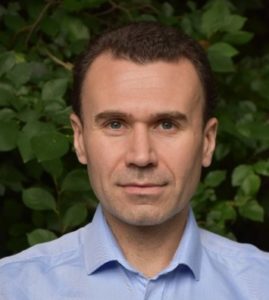
Eduardo Oliveira’s prime scientific interests are within the fields of spatial planning instruments such as strategic spatial planning and place branding. His research involves also economic geography concepts and the embedding of these in evolutionary governance systems. His current research focuses on analysing the effectiveness of strategic spatial planning instruments in supporting the social and economic development of less-developed regions and local communities within, whilst assessing its effect on environmental sustainability. His works have been published in several academic journals and books. Eduardo is a postdoctoral research associate at the Working Group Economic Geography of the Department of Geography at the University of Kiel, Germany. At the EG Working Group, he aims to investigate the relationship between strategy-driven and context-sensitive frameworks for sustainable territorial governance as catalysts of regional development. He holds M.Sc. from the University of Minho in Portugal and University Science Malaysia, and a Ph.D. from the University of Groningen, the Netherlands. He held positions at the University Louvain, Belgium and Swiss Federal Research Institute WSL.
Academic writing in English when this is not your first language is challenging at best of times and in this webinar, presenters share strategies and tips on how to overcome the hurdles non-native speakers might face. The presenters who are also editors of academic journals also share their tips on writing academic papers and publishing in journals.
Keywords: academic writing, journal paper, publishing, academic skills, English as a foreign language
Presenters: Heike Mayer, University of Bern, Switzerland and Pedro Amaral, Universidade Federal de Minas Gerais, Brazil
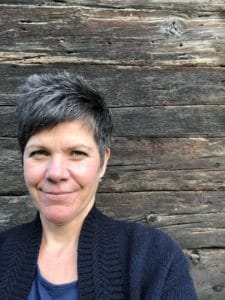
Heike Mayer is professor of economic geography at the University of Bern in Switzerland. Her research is in local and regional economic development with a focus on dynamics of innovation and entrepreneurship, place making and sustainability. Heike started her academic career in the United States, where she completed a Ph.D. in Urban Studies (Portland State University) and held a tenured professorship at Virginia Tech University. She is author of the book Entrepreneurship and Innovation in Second Tier Regions (Edward Elgar, Cheltenham), co-author of Small Town Sustainability (Birkhäuser Press, Basel), and co-author of The Political Economy of Capital Cities (Routledge, London).
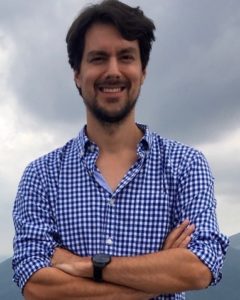
Pedro Amaral is a tenured professor (‘Professor Adjunto’) at the Department of Economics and the Center for Regional Development and Planning (Cedeplar) at Universidade Federal de Minas Gerais, Brazil, and Fellow of the Center for Spatial Data Science (University of Chicago, USA). I have a Ph.D. degree in Land Economy from the University of Cambridge and act as co-editor of the journals Spatial Economic Analysis (since 2014), Journal of Spatial Econometrics (since 2019), and Regional Studies, Regional Science (since 2013), and member of the scientific committee of the journal Nova Economia (since 2018). I am the ambassador for Regional Studies Association in Brazil (since 2017) and productivity fellowship awardee from the Brazilian Research Council CNPq (since 2017). I served as Visiting Associate Professor at the University of Chicago (2020), founding chair of the Regional Studies Association – Latin America Division (2015-2017), Executive Secretary of the Brazilian Association of Graduate Courses and Research on Urban and Regional Planning (ANPUR, 2015-2017), and member of the coordination board of the Brazilian journal Revista Planejamento e Políticas Regionais (2015-2017). My research interests are in the field of Regional and Urban Economics. More specifically, my research is based on applying spatial models and multivariate analysis to the study of regional and urban imbalances, mainly concerning health services.
Chair: Jana Schmutzler, Universidad del Norte, Colombia
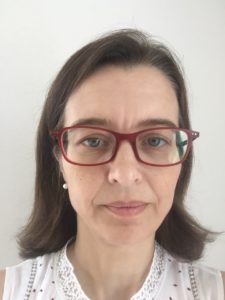
Jana Schmutzler is Assistant Professor at the Economics Department of the Universidad del Norte, Barranquilla, Colombia. She holds a PhD in economics from the Schumpeter School of Business and Economics at the Bergische Universität Wuppertal, Germany. Her research interest centers on innovation processes and entrepreneurial behaviour with a focus on developing countries. Specifically, she explores the role context plays in fostering (or hindering) these vital economic behaviours. Jana has published in internationally recognized journals in the field of Entrepreneurship and Innovation such as Entrepreneurship: Theory and Practice, Growth and Change and Industrial and Corporate Change. In addition, she has co-edited the books “Innovation in Developing and Transition Countries” and “Entrepreneurial Ecosystems Meet Innovation Systems”.
The number of academic journals grows each year, and it can be hard to know which to submit your paper to. In this webinar you will learn why it is important to choose the right journal, factors to think about when making this decision and tips for making the right choice.
Keywords: academic writing, journal paper, publishing, academic skills, impact factor, scope
Presenter: Madeleine Hatfield, Yellowback, UK
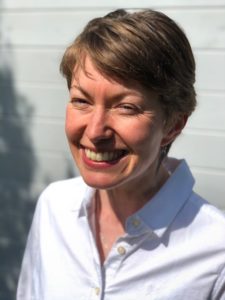
Dr Madeleine Hatfield is the Director of Yellowback, which provides editorial services to learned societies, authors and publishers. Madeleine has worked on many academic journals including Regional Studies Association titles. She has also contributed to policy briefings, how-to guides and workshops on academic publishing.
Chair: Klaus Dodds, Royal Holloway University of London, UK
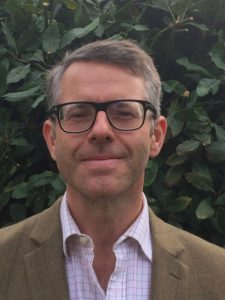
Professor Klaus Dodds is Executive Dean for the School of Life Sciences and Environment at Royal Holloway and Co-Director of the Living Sustainably research catalyst (with Professor Redell Olsen). He is a Visiting Professor at the College of Europe, Warsaw Poland.
He researches in the areas of geopolitics and security, ice studies and the international governance of the Antarctic and the Arctic.
In this webinar you will learn about journal and researcher metrics, including aspects around journal impact factors, citation analysis and altmetrics. The presenter explores how you can use these metrics for your own publications and how they can benefit your work.
Keywords: academic publishing, academic skills, journal metrics, impact factor, H-index, DORA, researcher metrics, citation, SciVal, Google Scholar
Presenter: Henry Wai-chung Yeung, National University of Singapore, Co-Director of
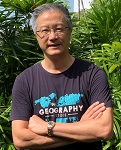
Henry Wai-chung Yeung is Distinguished Professor at the Department of Geography, National University of Singapore, Co-Director of the Global Production Networks Centre (GPN@NUS), and Director of the JY Pillay Comparative Asia Research Centre in the NUS Global Asia Institute. He is Principal Investigator of a US$4 million strategic grant awarded by the National University of Singapore to establish the GPN@NUS Centre. He is a leading social scientist specializing in theories and the geography of transnational corporations, global production networks and global value chains, East Asian firms and developmental states in the global economy.
Professor Yeung received his BA (First Class) from NUS in 1992 and PhD from the University of Manchester in 1995. He was a recipient of the NUS Outstanding University Researcher Award (1998), Outstanding Researcher Award (2008), and University Research Recognition Award (2018). In December 2017, he was selected by the American Association of Geographers in the United States to
receive the AAG Distinguished Scholarship Honors for 2018 “in recognition of his extraordinary scholarship and leadership in the discipline”. Earlier in June 2017, he was conferred the Royal Geographical Society (with IBG) Murchison Award 2017 for “pioneering publications in the field of globalisation”. Professor Yeung has published six authored books, seven edited books, and over 100 journal papers and 50 book chapters across the fields of human geography, urban and regional studies, Asian studies, international business, and political economy. His recent monographs are Strategic Coupling: East Asian Industrial Transformation in the New Global Economy (Cornell Studies in Political Economy Series, Cornell University Press, Ithaca, May 2016) and Global Production Networks: Theorizing Economic Development in an Interconnected World (with Neil Coe, Oxford University Press, Oxford, April 2015). His research has achieved very high impact in the social sciences. The ISI Web of Science database shows that he has 12 journal papers each receiving over 100 citations and his accumulated work has been cited at least 5,100 times in over 3,900 publications (excluding own work) as of January 2020, generating an h-index of at least 34. His citations on Google Scholar have exceeded 19,000. He is Editor of two top journals in Geography since 2001 – Environment and Planning A and Economic Geography and Past Editor of Review of International Political Economy (2004-2013), and serves on the editorial boards of 20 other international journals, including Global Networks, Journal of Economic Geography, and Journal of International Business Studies.
Chair: Jessica Vivian, Taylor & Francis, UK
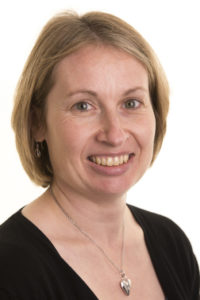
Jessica Vivian is the Publishing Director for the Arts & Humanities and Social Science journals programme at Routledge, Taylor & Francis. She has worked across a wide range of social science subjects in various editorial roles for nearly 30 years. Her current role is to develop and direct the HSS publishing strategy which, of great importance at the moment, includes finding a sustainable route to open research. Jessica has worked closely with the Regional Studies Association over the last 25 years to manage and develop their journals portfolio.
This session provides hints and tips for each stage of the publishing process, including: How to identify the right journal to submit to, How to prepare your manuscript to give it the best chance of being published, What journal editors are looking for and how they reach their decisions and How to engage with the review process (including how to deal with the infamous Reviewer 2)?
Keywords: preparing your manuscript, journal selection, journal editor, review process, publishing, academic skills
Presenter: John Harrison, Loughborough University, UK
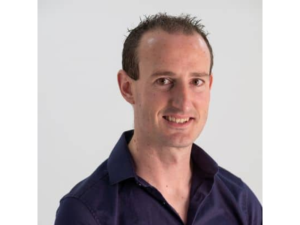
John works at Loughborough University in the UK. He is a regional geographer interested in the planning and governance of cities and regions in globalisation. John has been an Editor of Regional Studies since 2013, first as its inaugural Early Career Editor and then section editor for ‘Urban and Regional Horizons’.
His recent publications include the Handbook on the Geographies of Regions and Territories (with Anssi Paasi and Martin Jones), Doing Global Urban Research (with Michael Hoyler) and Metropolitan Regions, Planning and Governance (with Karsten Zimmermann and Daniel Galland), and he is currently co-editing a forthcoming special issue of Regional Studies on Planning Regional Futures (with Mark Tewdwr-Jones and Daniel Galland).
Chair: Madeleine Hatfield, Yellowback, UK

Dr Madeleine Hatfield is the Director of Yellowback, which provides editorial services to learned societies, authors and publishers. Madeleine has worked on many academic journals including Regional Studies Association titles. She has also contributed to policy briefings, how-to guides and workshops on academic publishing.
Open Access (OA) is on the rise, with continued growth in both the number of articles, and the number of venues to support OA publication. This growth has been supported by the increased proliferation of funder and institutional mandates. Researchers have more choice than ever before, but they must also make sure that they comply with the conditions of their grant funding, in an environment which is becoming ever more complex.
Keywords: research funding, academic skills, open access, publishing, Plan S
Presenter: Victoria Gardner, Taylor & Francis, UK
Victoria Gardner is Director of Policy at Taylor & Francis. She delivers the organisation’s policy and public affairs strategy, including internal and external advocacy, horizon scanning, and strategic planning. She advises on responses to government consultation and sits on the Publishers Association Public Affairs Committee and STM’s Policy and Advocacy committee. She has experience of working in a variety of functions including journal management, Open Access, and Technology. Previous roles include Director of Open Access (OA) Operations and Policy, working cross-departmentally to improve infrastructure, workflow and services around OA and Head of Researcher Services Development where she worked part of a cross functional team focused on product development (specifically improving services around submission to publication, with emphasis on OA). She also spent number of years working on a subject team manging a portfolio of titles, which included a secondment to the Johannesburg office.
Chair: Sally Hardy, Regional Studies Association, UK
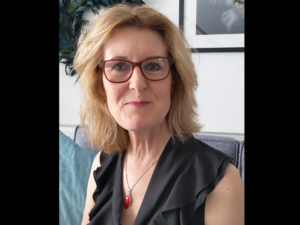
Sally Hardy began her career at the Economic and Social Research Council where she worked as a Scientific Officer in the Industry and Employment Committee dispensing funding to UK based social science academics. Sally moved to the Regional Studies Association where she has been CEO for just over 30 years. She has developed the organisation from a small, UK focused organisation into a global Association with an international footprint. Sally has become an advocate on publishing issues for the learned society sector speaking regularly at national conferences and events. She has advocated on different aspects of Open Access – for journals as well as for monographs and also around copy right reform and educational exceptions. She speaks on publishing practice and particularly on how to grow impact from publishing activity and on issues of learned society strategy. She currently sits on the Society Publishers Coalition Council and the Governance Committee of the Association for Learned and Professional Society Publishers and is the founder member of the Academy for Social Science CEOs Committee.
Experts Andrew Kelly and Sarah Bird discuss the ins and outs of Open Access, and how (and why) you should go about publishing your research openly and how to boost your citations through open publishing.
Keywords: publishing, researchers, gold open access, green open access, citations
Presenters: Andrew Kelly and Sarah Bird, Taylor and Francis, UK
Andrew Kelly
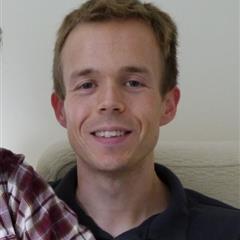
Andrew Kelly holds a PhD in Chemistry from the University of Bath (2008). He has worked in publishing for more than 15 years and is currently Portfolio Development Specialist – Open Access for Taylor & Francis, where he supports the strategic and structural development of the fully OA portfolio to best meet the needs of our author communities.
Sarah Bird

Sarah Bird is a Portfolio Manager at Routledge, Taylor & Francis. She has been in Publishing for the last 7 years, with five years leading the Geography and Regional Studies portfolios. She has previously worked across disciplines compiling and delivering teaching outputs and managing professional learning and development outcomes.
Chair: Sally Hardy, Regional Studies Association, UK
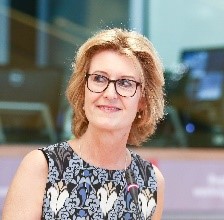
Sally Hardy began her career at the Economic and Social Research Council where she worked as a Scientific Officer in the Industry and Employment Committee dispensing funding to UK based social science academics. Sally moved to the Regional Studies Association where she has been CEO for over 30 years. She has developed the organisation from a small, UK focused organisation into a global Association with an international footprint. Sally has become an advocate on publishing issues for the learned society sector speaking regularly at national conferences and events. She has advocated on different aspects of Open Access – for journals as well as for monographs and also around copy right reform and educational exceptions. She speaks on publishing practice and particularly on how to grow impact from publishing activity and on issues of learned society strategy.
This session gives insights on how to publish an academic book, covering aspects from finding the idea, up until the moment you hold the print copy in your hands. In details, the session highlights components that make a good proposal, how to choose the most suitable publisher, the differences between an edited book and a monograph, provides tips on the writing process, timeframe, working with a publisher and book marketing and promotion.
Keywords: book publishing, book proposal, edited book, monograph, publishing, academic skills, book marketing
Presenter: Rob Kitchin, Maynooth University, Ireland
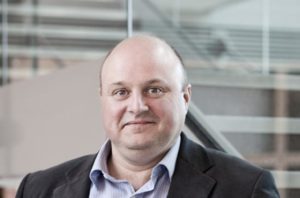
Rob Kitchin is a professor in Maynooth University Social Sciences Institute and Department of Geography. He was a European Research Council Advanced Investigator on the Programmable City project (2013-2018) and a principal investigator on the Building City Dashboards project (2016-2020). He is the (co)author or (co)editor of 31 academic books and (co)author of over 200 articles and book chapters. He has been an editor of Dialogues in Human Geography, Progress in Human Geography and Social and Cultural Geography, and was the co-Editor-in-Chief of the International Encyclopedia of Human Geography. He was the 2013 recipient of the Royal Irish Academy’s Gold Medal for the Social Sciences.
Chair: Alejandra Trejo, El Colegio de Mexico, Mexico
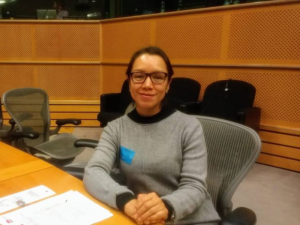
Alejandra Trejo is an economist, holds a Master degree in Regional Economics and a PhD in Development Studies. She is currently a professor at the Center for Demographic, Urban and Environmental Studies, El Colegio de Mexico in Mexico City. She is an ambassador to Mexico of the Regional Studies Association, and a UKRI International Development peer review college member. Her research agenda reflects significant interdisciplinary concerns about the issues of urbanization, urban and regional economic development, governance and policy.
In this session you will learn more about publishing ethics and receive top tips helping you to avoid pitfalls when it comes to submitting your work to publishers. The presenter covers questions around authorship including the order of authors, affiliation, consent to publish identifiable information, acknowledgements, plagiarism (ideas as well as text), text recycling and redundant publication, self-plagiarism, and duplicate submissions and publications.
In this session you will learn more about publishing ethics and receive top tips helping you to avoid pitfalls when it comes to submitting your work to publishers. The presenter covers questions around authorship including the order of authors, affiliation, consent to publish identifiable information, acknowledgements, plagiarism (ideas as well as text), text recycling and redundant publication, self-plagiarism, and duplicate submissions and publications.
Keywords: publishing ethics, publishing, authorship, consent to publish, duplicate publication, plagiarism, iThenticate, academic skills,
Presenter: Sarah Robbie, Taylor & Francis, UK

Sarah Robbie is the Head of Research Integrity & Ethics at Taylor & Francis. Her work involves supporting journal editors and editorial teams in addressing publication ethics and integrity issues, developing editorial policies, providing training, and working with industry groups to tackle emerging publication ethics topics. Sarah is a member of the STM working group on image alteration and detection and the COPE working group on author name changes, as well as representing Taylor & Francis on the Joint Commitment for Action on Inclusion and Diversity in Publishing.
Chair: Sally Hardy, Regional Studies Association, UK

Sally Hardy began her career at the Economic and Social Research Council where she worked as a Scientific Officer in the Industry and Employment Committee dispensing funding to UK based social science academics. Sally moved to the Regional Studies Association where she has been CEO for just over 30 years. She has developed the organisation from a small, UK focused organisation into a global Association with an international footprint. Sally has become an advocate on publishing issues for the learned society sector speaking regularly at national conferences and events. She has advocated on different aspects of Open Access – for journals as well as for monographs and also around copy right reform and educational exceptions. She speaks on publishing practice and particularly on how to grow impact from publishing activity and on issues of learned society strategy. She currently sits on the Society Publishers Coalition Council and the Governance Committee of the Association for Learned and Professional Society Publishers and is the founder member of the Academy for Social Science CEOs Committee.
This meet the Editors Session in China was organised in partnership with the RSA’s China Division, the RSA Journals and the publisher, Taylor and Francis, this webinar introduced key academic journals in regional studies, policy and science, provide insights into current practices in academic publishing and opportunities to interact and engage with journal editors to learn more about the specific journal and its publishing options.
This webinar has been designed for our Chinese community and was delivered in Mandarin.
Keywords: journals, academic publishing, academic writing, journal paper, publishing, academic skills
Speaker: Sally Hardy, CEO, Regional Studies Association, UK

Sally Hardy began her career at the Economic and Social Research Council where she worked as a Scientific Officer in the Industry and Employment Committee dispensing funding to UK based social science academics. Sally moved to the Regional Studies Association where she has been CEO for over 30 years. She has developed the organisation from a small, UK focused organisation into a global Association with an international footprint. Sally has become an advocate on publishing issues for the learned society sector speaking regularly at national conferences and events. She has advocated on different aspects of Open Access – for journals as well as for monographs and also around copy right reform and educational exceptions. She speaks on publishing practice and particularly on how to grow impact from publishing activity and on issues of learned society strategy.
Speaker: Jihai Yu, Professor in the Department of Business Statistics and Econometrics at Guanghua School of Management, Peking University, China
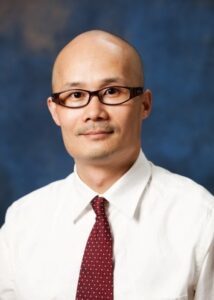
Jihai Yu is currently the co-editor of Spatial Economics Analysis and a professor in the Department of Business Statistics and Econometrics at Guanghua School of Management, Peking University. His research interests include spatial econometrics and microdata analysis. Specifically, it is to specify, estimate and make statistical inferences about various static and dynamic spatial panel models, and to use econometric tools to conduct empirical analysis in the fields of regional economic growth, local government competition, and air pollution.
Regional Studies, Regional Science
Speaker: Sally Hardy, CEO, Regional Studies Association, UK

Sally Hardy began her career at the Economic and Social Research Council where she worked as a Scientific Officer in the Industry and Employment Committee dispensing funding to UK based social science academics. Sally moved to the Regional Studies Association where she has been CEO for over 30 years. She has developed the organisation from a small, UK focused organisation into a global Association with an international footprint. Sally has become an advocate on publishing issues for the learned society sector speaking regularly at national conferences and events. She has advocated on different aspects of Open Access – for journals as well as for monographs and also around copy right reform and educational exceptions. She speaks on publishing practice and particularly on how to grow impact from publishing activity and on issues of learned society strategy.
Territory, Politics, Governance
Speaker: Chih Yuan Woon, Associate Professor, Department of Geography, National University of Singapore
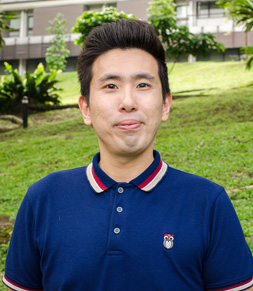
Chih Yuan Woon (温之元) is Associate Professor of Geography at the National University of Singapore. He is a political geographer who has research interests in critical geopolitics, postcolonial geographies and issues to do with peace, nonviolence and security. Currently, he is examining the geopolitical and geoeconomic implications of China’s ‘rise’, contextualizing such debates through the ‘Belt and Road Initiative’ as well as China’s ongoing interest and interventions in the Polar regions. He has served as the co-editor of Territory, Politics, Governance (2019-2023) and the RGS-IBG Book Series (2020-2023) and sits on the editorial boards of Critical Military Studies, Environment and Planning C: Politics and Space, Geography Compass (Political Geography Section), Territory, Politics, Governance and The Singapore Journal of Tropical Geography.
Speaker: Shenjing He, Head of Department and Professor Urban Planning and Design, Hong Kong University
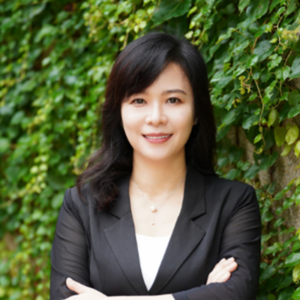
Shenjing He is Professor of Urban Studies and Head of the Department of Urban Planning and Design, Faculty of Architecture, The University of Hong Kong (HKU). Shenjing’s research interests focus on urban governance, urban redevelopment/gentrification, rural-urban integration, low-income housing, and housing price mechanism, health and the city. Shenjing was conferred the award of Fellow of the Academy of Social Sciences (UK) in 2021 and she serves as co-Editor in Chief for Area Development Policy since 2023, and editor for Urban Studies since 2012, and sits on the editorial board of several urban and geographical journals. She is the founding director of the Social Infrastructure for Equity and Wellbeing (SIEW) Lab and the executive deputy director of the Urban Systems Institute at HKU. Her current research projects include neighbourhood governance, cross border healthcare utilization, housing and wellbeing, housing and education inequalities, and climate gentrification.
Speaker: Fenghua Pan, Associate Professor, School of Geography, Beijing Normal University, China
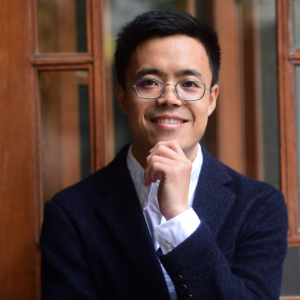
Fenghua Pan is professor and vice dean of the Faculty of Geographical Science, Beijing Normal University. He holds a PhD degree from Peking University. He was a research associate in University of London College and visiting scholar at the University of California, Los Angeles and the University of Hong Kong, Hong Kong Baptist University. He is the founding member of the global network on financial geography (FinGeo). He was the organizer of the 1st FinGeo Global Conference held in 2019 at Beijing Normal University. His recent research interests are financial geography, financialization, and urban and regional development in China. He has been the principal investigator of four projects funded by the National Natural Science Foundation of China, including the Excellent Youth Fund in 2020. He was granted the National Award for Young Geographers in 2017. His recent papers are published in lead international journals including Regional Studies, Urban Studies, Geoforum, Urban Geography, The China Quarterly, Cities and et al.
Chair: Zhouying Song, Professor of Economic Geography, Chinese Academy of Science, China
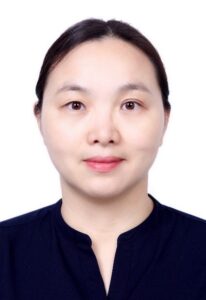
Zhouying Song is Professor of economic geography, Institute of Geographic Sciences and Natural Resources Research, Chinese Academy of Science (CAS); Professor of College of Resources and Environment, University of Chinese Academy of Sciences. Her research interests include Chinese regional development and disparities, regional sustainable development and geographical environment, and industrial cluster and global production network. She conceptually draws on location theory, institutional economics and global production network approaches to understand the spatial evolution of regional development and its environmental effects at different geographical scales. Her work has been published in the Urban Studies, Applied Geography, Journal of Geographical Sciences, Energy Policy, Environment and Planning B,and Area Development and Policy.
If you are in China click here to watch the recording.
The webinar is a conversation on what an academic blog is. How is it different from a regular blog, op-eds or zine? Why write a blog, and how does it help in academia? Does a journal paper qualify as a blog and vice versa? Who reads academic blogs and benefits from them? Lavanya shares some friendly editorial tips on crafting a strong blog for effective knowledge dissemination or change.
Keywords: non-standard academic article, blog, magazine, publishing, academic skills, impact, outreach
Presenter:
Lavanya Gupta, Tata Institute of Social Sciences, India & RSA Blog Editor
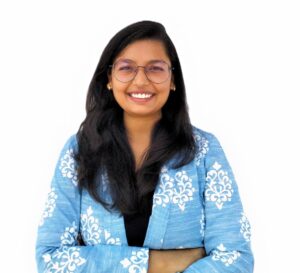
Lavanya is a rural geographer and PhD scholar at Tata Institute of Social Sciences, India, where she examines the intersections of innovation, entrepreneurship, and community development in the Himalayan region. Her doctoral research in Munsiyari, Kumaon, explores how cultural entrepreneurship initiatives catalyze rural regeneration. Her previous works investigated pathways for rebuilding rural spaces with women’s traditional knowledge. She has worked with IIT Guwahati on a project on regional food cultures and social dynamics and specializes in left-behind places and rural transformation; she contributes to academic discourse through her role as co-editor of Just Rural Futures and her work advancing feminist geography perspectives in spatial studies.
Chair:
Robert Bowen, Cardiff University and RSA Regions eZine Editor, UK
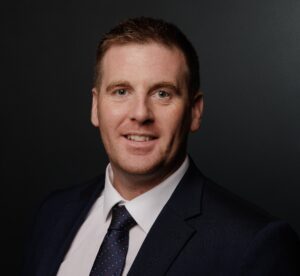
Robert Bowen is an International Entrepreneurship academic at Cardiff Business School at Cardiff University, and has previously held academic positions at Swansea University and Aberystwyth University in Wales, and the University of Nantes in France. He also currently holds a position of Visiting Professor at Audencia Business School in Nantes, France. Dr Bowen undertakes research into rural enterprise, regional development, place marketing and SME internationalisation, with a strong interest in food and drink SMEs. He has published in a range of international journals, and presented his research at the Welsh Parliament, House of Lords, and European Commission. He currently holds positions of co-chair of the Rural Enterprise track at the annual ISBE (Institute of Small Business and Entrepreneurship) conference, and co-Editor of Regions (along with Eduardo Oliveira and Stefania Fiorentino), an online publication of the Regional Studies Association. He is also a Senior Fellow of the Higher Education Academy.
Engaging with Policymakers
This interactive session focuses on how to work with policymakers and how to get your research read and considered by policymakers. The presenter shares his insights, challenges faced and learnings when working with national governments, tips on how to cultivate a relationship and influence policymakers, focussing on considering the audience, presenting finding in an accessible way and making recommendations that are actionable.
Keywords: policymaker, impact, science communication, influence policy, public policy, academic skills, engaging with policymakers
Presenter: Austin Kilroy, World Bank, Croatia
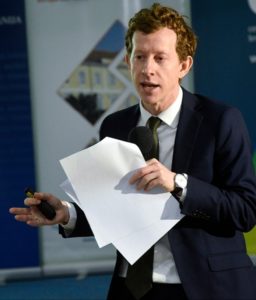
Austin Kilroy is an operational staff member at the World Bank. He has worked in Europe, Africa, and Asia, especially on projects related to subnational economic development. Amongst a total of 87 projects, he co-led the Bank’s initiative on city competitiveness and has led a multi-sector team of 100+ people to support the Government of Croatia in addressing lagging regions. His PhD (M.I.T., 2011) dissertation was on business transactions and interethnic trust. He is becoming increasingly interested in the dynamics of collective intelligence.
Chair: Katharina Bürger, RSA, UK
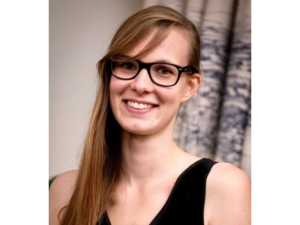
Katharina joined the Regional Studies Association in November 2018, after having worked as an Events Manager on the South Coast of England. She holds a Bachelor of Arts in Tourism Management (Kempten University of Applied Sciences, Germany) and is a University of Brighton graduate (Master of Science in International Event Management). She is currently doing a PhD at Brighton Business School, University of Brighton, focusing on mega-events and resistance. Her work at the RSA is around the planning and organisation of the Associations’ international and varied conferences and events programme, including the Professional Development Webinar Series.
Consultations are an important part of the policymaking process. They help policymakers gauge opinion on a topic or proposal, seeking the views of a large number of experts in a short time. For researchers, they provide a shortcut to impact – responding effectively to consultations is a quick way to show the benefits of academic research. This session presents a dialogue between an academic and a policymaker sharing insights and tips how academic research can support policymaking and thus achieve impact from consultations.
Keywords: policymaker, science communication, public policy, influence policy, academic skills, impact, engaging with policymakers, relationship building
Presenters: Laura de Dominicis, Directorate General for Regional and Urban Policy, European Commission, Belgium and Neil Lee, London School of Economics, UK
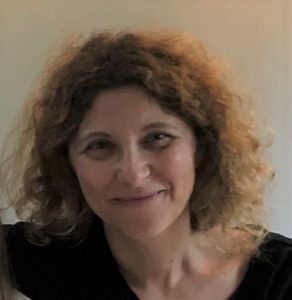
Laura de Dominicis is economic analyst at the Directorate General for Regional and Urban Policy of the European Commission, where she is responsible for carrying out quantitative analyses on various aspects linked to the economic development of EU regions and cities. More recently, her research has focused on the analysis of the so-called “geography of discontent” and on subjective well-being in European cities.
Previously, she has worked as an economic analyst in the European Commission at the Directorate General for Employment and Social Affairs and at the EC Joint Research Centre in Seville, and as a postdoctoral researcher at the department of Spatial Economics of the VU University Amsterdam. She holds a PhD in Economics and has published several papers in academic journals, mainly on the determinants of regional economic growth.

Neil Lee is a Professor of Economic Geography at the London School of Economics. His work uses econometric methodologies to investigate issues closely related to public policy, and his recent studies have included studies on whether high-technology growth benefits low-skilled workers, inclusive growth, and new forms of innovation policy. Before joining academia, he was head of the Socio-Economic Centre at the Work Foundation, a think-tank. He has provided research and expert advice for organisations including the OECD, World Bank, European Commission, various UK government departments, the JRF, Power to Change, and the Resolution Foundation.
Chair: Franziska Sielker, University of Cambridge, UK
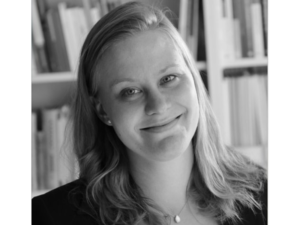
Dr. Franziska Sielker is a Lecturer for Planning and Housing at the Department of Land Economy at the University of Cambridge and Associate Member of Cambridge Centre for Planning and Housing. Her research is at the intersection of fundamental and applied research with a focus on European Spatial Governance, planning and housing and the Belt and Road Initiative. She has regularly been involved in studies and projects with direct impact in policy making at the European, regional or local level.
Communicating scientific content to policymakers is an essential skill when aiming to maximise the impact of your research. It requires finding the right angle, hook or entry point that can catch attention. It should also link to current policy debates and issues. The message should be simple, but not simplistic. In this session the presenter will share insights drawing from his 20 years’ experience at the interface of science and policy.
Keywords: policymaker, science communication, engaging with policymakers, relationship building, academic skills, impact, public policy
Presenter: Lewis Dijkstra, Directorate-General for Regional and Urban Policy, European Commission, Belgium
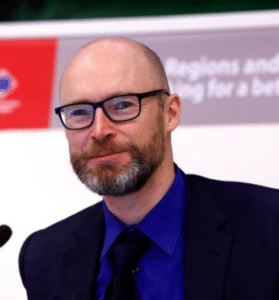
Lewis Dijkstra is the Head of the Economic Analysis Sector of the Directorate-General for Regional and Urban Policy in the European Commission. He is the editor the Cohesion Report, which analyses economic, social and environmental issues in EU regions and cities. He is also a visiting professor at the London School of Economics.
He works closely with the OECD, the UN, the World Bank, the European Environmental Agency, the Joint Research Centre and Eurostat.
His recent work covers topics such as a global definition of cities and rural areas, measuring transport performance, the geography of EU discontent, quality of government and gender equality.
He holds a PhD in Urban and Regional Planning from Rutgers University, New Jersey, an MSc in Urban and Regional Planning from the London School of Economics and Political Science and a BA in Political Science from the University of Ghent, Belgium.
Chair: Lisa De Propris, University of Birmingham, UK
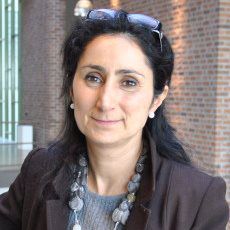
Lisa De Propris is a professor of regional economic development. Her research interests include knowledge economy, innovation, and technological change; innovation systems, clusters, and industrial districts; regional development and competitiveness. In parallel, I have always been concerned with the role of the government and institutions including innovation and industrial policies and EU regional and cohesion policy.
This session is part of our focus on working with policymakers and highlights the perspective of an academic. The presenter shares her insights and top lessons learnt when communicating research to policymakers in addition to exercises that help summarise research in an accessible way and to use storytelling to convey research findings.
Keywords: policymaker, science communication, engaging with policymakers, relationship building, academic skills, impact
Presenter: Heike Mayer, University of Bern, Switzerland

Heike Mayer is professor of economic geography at the University of Bern in Switzerland. Her research is in local and regional economic development with a focus on dynamics of innovation and entrepreneurship, place making and sustainability. Heike started her academic career in the United States, where she completed a Ph.D. in Urban Studies (Portland State University) and held a tenured professorship at Virginia Tech University. She is author of the book Entrepreneurship and Innovation in Second Tier Regions (Edward Elgar, Cheltenham), co-author of Small Town Sustainability (Birkhäuser Press, Basel), and co-author of The Political Economy of Capital Cities (Routledge, London).
Chair: Kinga Ostanska, European Parliament, Belgium
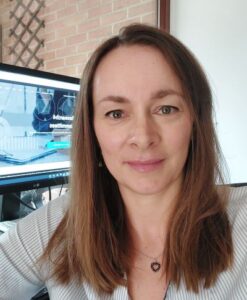
Kinga Ostanska is currently working as a Documentary and Information Assistant in the Policy Department for Structural and Cohesion Policies. She used to work for the Polish Chancellery of the Sejm as well as for private companies.
A lawyer by education she has nevertheless dedicated her professional career to communication and information research. For over 20 years she has been working providing policy makers on national and European level with information and communication support they need throughout the legislative process.
In her free time she runs https://simplescicomm.blog/ where she shares lessons from her professional career as a communicator. She is also active on Twitter where she enjoys learning from #scicomm community: https://twitter.com/kinga_ostanska
The ability to write for and engage with policymaker audiences has become an important skill for researchers to acquire and develop. This partly reflects increasing demands from external funding bodies for new research that has real societal impact, and which may only be facilitated through changes in policy and/or new policy design. In addition, universities are increasingly being tasked to focus upon their civic activities, with academics being encouraged to liaise closely with regional stakeholders and policymakers on issues and challenges of local/regional concern.
Keywords: policymaker, communication, engaging with policymakers, relationship building, academic skills, impact
Speaker: Phil Tomlinson, University of Bath, UK
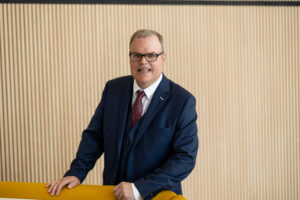
Phil Tomlinson is Professor of Industrial Strategy and Co-Director of the Centre for Governance, Regulation and Industrial Strategy (CGR&IS) in the School of Management at the University of Bath, UK. He is a Fellow of the Academy of Social Science and he is also the Policy Debates Editor at Regional Studies and he was formerly the RSA’s Policy Expo series Editor. Phil’s research explores the interplay between economic governance, innovation, regional development and place-based industrial strategy. He has published widely and extensively in this area, in leading academic journals, and also in policy and practitioner facing outlets, including industry reports, policy briefs and the media. Phil has held several external appointments at local, regional, national and international levels, including with UK Parliamentary bodies, and he has also organised/chaired and spoken at events at the European Commission.
Speaker: Mariachiara Barzotto, University of Bath, UK
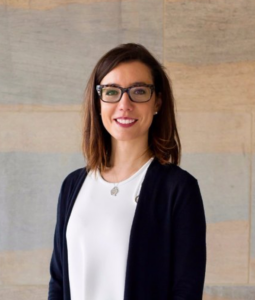
Mariachiara Barzotto is an Associate Professor in International Management at the University of Bath, UK. Prior to this, Mariachiara worked as an Assistant Professor at Newcastle University Business School and Essex Business School, UK. Her research focuses on skills, labour markets, technological changes, new working spaces and regional development. Her research has been published in international journals, and also in policymakers and practitioners outlets. Her work has been cited by the Asian Development Bank and Publications Office of the European Union. She held a Marie Skłodowska-Curie Individual Fellowship under EU Horizon 2020, and funding from Regional Studies Association Policy Expo as well as the British Academy/Leverhulme. She is currently leading the Policy Working Group within EU COST Action (CA18214) on the geography of new working spaces and the impact on the periphery and is co-investigator on EPSRC – Made Smarter Innovation: Centre for People Digitalisation. She is a member of the scientific committee of Regional Studies and Local Development Journal and the Expert Stakeholder Group on Future Technologies and Skills within PILLARS – Pathways to Inclusive Labour Markets (EU Horizon 2020).
Chair: Dimitri Corpakis, former EU Official, Belgium
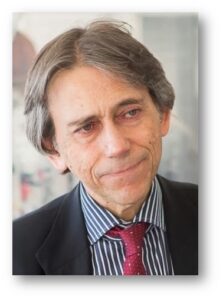
Dimitri Corpakis, is an independent expert, writing and talking on innovation, growth and technological change. An engineer and planner by training, he has more than 30 years’ experience on the European integration process. Dimitri worked extensively for the European Commission in Brussels as well as for the Greek civil service. His work experience spans many policy areas including Education and Training, Information and Communication Technologies, Social Sciences and Humanities, and Regional Innovation Ecosystems with an emphasis on interactions and synergies between the Union’s Research and Innovation and Cohesion Policies (European Structural and Investment Funds). Prior to retiring from the European Commission, Dimitri led the Unit on the Regional Dimension of Innovation (Directorate General for Research and Innovation). As of 2018, Dimitri co-founded FoSS (Friends of Smart Specialisation) an informal advocacy group. Dimitri is a former member of the Executive Committee of the International Triple Helix Association, a Fellow of the Regional Studies Association (RSA) and a Senior Research Fellow of the South East European Research Centre (SEERC) a research centre of CITY College, University of York Europe Campus. His current research interests focus on the links between Smart Specialisation and Industry 4.0, Global Value Chains and Regional Innovation Ecosystems.
The UK Parliament plays a key role in the government and politics of the UK. However, it can be hard to understand as an institution. This session outlines how the House of Commons and House of Lords fit into the policy-making process. It explains the purposes of the different types of proceedings within both Houses and highlights routes for scholars to get their findings heard by MPs and peers. It also provides information about how to engage with Parliament, including the new Thematic Research Leads and the Parliamentary Academic Fellowship scheme.
Keywords: Policymaker, communication, Government, policy-making process
Speaker: Mark Sandford, Senior Research Analyst, House of Commons Library, UK
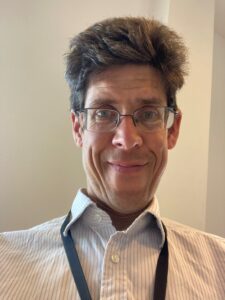
Mark Sandford is a senior research analyst in the House of Commons Library, specialising in local government and devolution within England. He has published a number of reports, papers and journal articles on local government finance and English devolution.
Chair: Carolin Ioramashvili, Science Policy Research Unit (SPRU), University of Sussex, UK
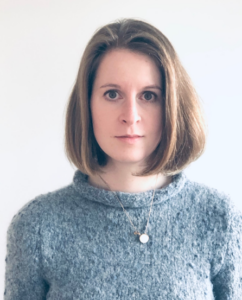
Carolin Ioramashvili is a Lecturer in Innovation Policy at the Science Policy Research Unit (SPRU), University of Sussex. She is currently the recipient of a British Academy Innovation Fellowship. For this project, she is working with the Evaluation Task Force in the UK Cabinet Office to improve evaluation for local growth policies. From 2021 to 2023, she was a research fellow at City-REDI and WM-REDI at the University of Birmingham. she got her PhD from the department of geography and environment at the London School of Economics, where she is also a visiting fellow. Carolin’s research interests are innovation and its role for regional development, labour markets and inequality.
Presentation Skills
Presentations are an essential (and unavoidable) part of the research process and being a researcher. This session provides a handy checklist to help you with your next effective presentation.
Keywords: science communication, presentation, academic skills, professional development
Presenter: Rachel Franklin, Newcastle University, UK
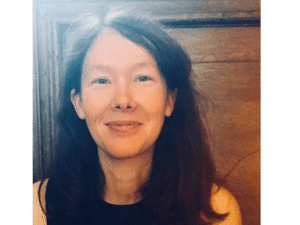
Rachel Franklin is professor of geographical analysis in the Centre for Urban and Regional Development Studies (CURDS) at Newcastle University, as well as fellow of the Alan Turing Institute and visiting scholar at the Population Studies and Training Center at Brown University. She is the current editor of Geographical Analysis, and prior to joining Newcastle in 2018, she was the associate director of Brown’s initiative in spatial structures in the social sciences (S4). Her research focus is in spatial demography and the interplay between spatial analytics and demographic change, in particular quantifying patterns, sources and impacts of spatial inequality.
Chair: Vanessa Guerra, Virginia Tech, USA
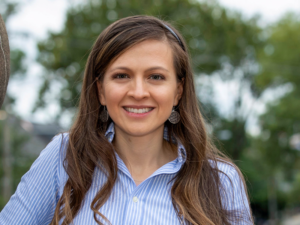
Dr. Vanessa Guerra is an architect, urban planner, researcher, and scholar working on urban interventions to promote social inclusion, resilience, and sustainable development in cities and regions worldwide. She joined the UVA School of Architecture in July 2021. Most recently, at Virginia Tech’s College of Architecture and Urban Studies (CAUS), she serves as the Interim Program Director of Rhizome LLC, a project-based learning forum that explores global challenges in local communities. Under this role, Dr. Guerra led the development and planning for this initiative and presented the project this year at the 17th Venice Architecture Biennale Italian Virtual Pavilion Sezione del Padiglione Italia. At Virginia Tech, she also served as a research associate at CAUS’ Dean office and an active member of the Institute for Policy and Governance and the Community Change Collaborative, where she serves as a researcher within the Maré research group.
This session focusses on visual aspects of communication, particularly as they relate to graphs and maps – two things which we see quite a lot of in regional studies. The presenter shares his tips to make impactful charts and maps. Too often, these are treated as supplementary or additional when in the field of regional studies. However, charts and maps are often integral to telling the story of our work.
Keywords: science communication, impact, data visualisation, charts, maps, academic skills, professional development
Presenter: Alasdair Rae, Automatic Knowledge, UK
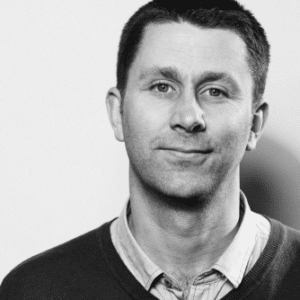
Alasdair Rae is a Professorial Fellow in Urban Studies and Planning at the University of Sheffield. His work focuses on the manipulation, analysis and visualisation of large geographic datasets in relation to urban planning, transport, policy and land issues. More generally, he is a proponent of open data and in his work seeks to make use of the wide range of new datasets that have become available in recent years to advance knowledge in policy-relevant areas. His work has appeared in a variety of media outlets, including The Economist, Huffington Post, CityMetric, WIRED, The Guardian, The Royal Statistical Society magazine and the BBC. He tweets at @undertheraedar and blogs at www.statsmapsnpix.com.
Chair: Sylvia He, The Chinese University of Hong Kong
There are currently 4.3 million articles hosted on the Taylor and Francis website. A video abstract has the power to stand out of the crowd and reach wider audiences including press, policymakers and non-academics. From content to delivery, in this session you learn how to distil and convey the most important research points and messages covering:
• Your target audience
• Mechanics of a video
• Storytelling and script
• Body language
• Equipment
• Video editing
• Where to host your video?
Keywords: science communication, video abstract, academic skills, professional development
Presenter: Louise MacLeod, Taylor & Francis, UK
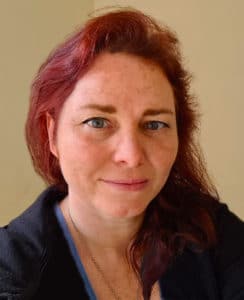
Louise MacLeod is the Multimedia Manager at Taylor & Francis Group in Oxford, UK. Her background is in Film and Television. She has worked on major feature film to micro production projects, ranging from Harry Potter to Midsummer Murders. She currently runs the YouTube channel for Taylor & Francis Journals and produces branded content for other Social Media platforms too. Louise is an animator, videographer, editor, director, scriptwriter, and producer.
Chair: Marcin Dąbrowski, TU Delft, The Netherlands

Marcin Dąbrowski is an assistant professor at the Department of Urbanism, Faculty of Architecture and the Built Environment, Delft University of Technology. In the past he worked as a researcher at the University of Strathclyde (EPRC), the University of Vienna and as a consultant for the OECD. His research interest span across many topics related to governance of territory, from regional strategies for circular economy (H2020 REPAiR), to governance of urban climate change adaptation policies and Europeanisation of spatial planning (ESPON COMPASS). He has also published extensively on EU Cohesion Policy (e.g. H2020 COHESIFY). He is the lead editor of the Early Career Section of Regional Studies, Regional Science journal and co-organiser of the Regional Studies Association’s Research Network on EU Cohesion Policy. His academic achievements brought him several personal grants and awards (e.g. Urban Studies Foundation Postdoctoral Fellowship, Urban Knowledge Network Asia fellowship, RSA Early Career Excellence Award).
Are you finding yourself in the position that you have been requested to organise and host a Zoom webinar? This session will give you useful tips on how to prepare and host a webinar, technical insights and provides an overview of lessons learnt from the RSA’s own Professional Development Webinar Series.
Keywords: science communication, webinar, academic skills
Presenter: Alex Holmes, RSA
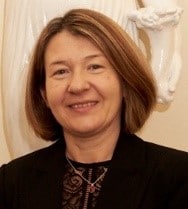
Alex joined as the RSA Communications and Membership Manager in March 2018. Prior to this, she had been a physics teacher for 17 years and an archaeological researcher/tech at UCL after completing her Masters in 1995. She completed her Doctorate in Education in 2015.
Chair: Daniela Carl, RSA
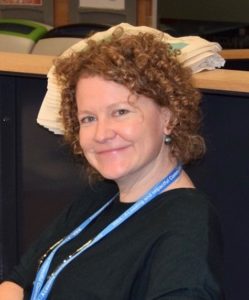
Daniela is the Deputy Chief Executive of the Regional Studies Association. Prior to working with the RSA, Daniela worked in research and business development roles at universities in Germany, New Zealand and the UK, as events and tourism consultant and lecturer. In 2020, Daniela has been leading the transformation of the RSA’s global events and conferences portfolio to online delivery, developing two popular webinar series and RSA Global.
Career Development
The session features a current University Vice Chancellor sharing his insights and tips from many years of being involved in academic recruitment. The presenter covers the steps when applying for an academic job starting with the key question that one needs to ask at the beginning of any job search: What job am I looking for? Following, key components of an academic application such as cover letter, CV, letters of reference, research and teaching statements are addressed. Advise on what should an applicant emphasise on in the application and what search committees are looking for are also covered. This session is packed with great tips and will be useful not just for researchers setting out to applying for their first academic job.
Keywords: career development, career planning, job application, academic job
Presenter: Martin Jones, Staffordshire University, UK
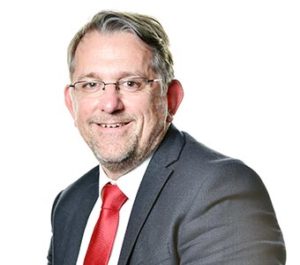
Martin (Deputy Vice Chancellor and Professor of Human Geography, Staffordshire University) works at Staffordshire University, with responsibility for Research, Academic and Strategic Planning, the Student Experience, and SU Academy Trust. Martin joined the University in May 2017 from the Department of Geography at the University of Sheffield, where he was Director of the White Rose Social Science Doctoral Training Centre and Professor of Urban and Regional Political Economy.
Prior to this Martin worked at Aberystwyth University as the Pro Vice-Chancellor for Research and Co-Director of the Wales Institute of Social and Economic Research, Data and Methods (WISERD).
Martin is an interdisciplinary researcher, working in the broad area of society and space and specifically on the interface between economic and political geography through economic development and governance. His current research, funded through WISERD and the ESRC, is looking at city-region building and the Foundational
Economy in Wales and England. He has been a member of the Regional Studies Association for 25 years and is the originator and co-editor of the journal Territorial, Politics, Governance.
During his career Martin has been a member of some 300+ interview panels, chairing some 150 of these, appointing to a wide range of teaching, research and professional services positions, and ranging from those in the early stages of their careers to executive postholders.
Chair: Stefania Fiorentino, University College London, UK
This session has been organised by the RSA’s early career researchers’ community and brings together a panel of postdoc researchers sharing their postdoc journeys with the ups and downs, lessons learnt, the role of publications, networking, tips for your application, encouragement and key advice.
Keywords: career development, career planning, postdoc, academic job, transitions, imposter syndrome, networking, academic publishing, job application
Presenters:
Kate Broadhurst, Loughborough University, UK
Bryonny Goodwin-Hawkins, University of Gloucestershire, UK
Vasilis Avdikos, Panteion University, Greece
Camilla Chlebna, Carl von Ossietzky University Oldenburg, Germany
Tasos Kitsos, University of Birmingham, UK
Chair: Frances Brill, University of Cambridge, UK
This session presents career paths for researchers outside academia that still offer opportunities to conduct research. The session covers pros and cons of a research career outside academia, potential non-academic employers performing advanced research in RSA subjects (i.e. multilateral organisation, governments, think tanks, foundations, museums, industry, service companies, NGOs, etc.) and tips for the application process.
Keywords: career development, policymaking, non-academic career path, science communication
Presenter: Silvia Grandi, Italian Ministry for the Economic Development and University of Bologna, Italy
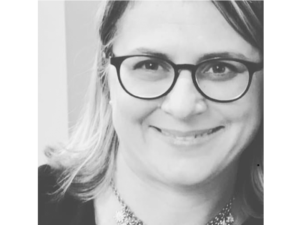
Silvia Grandi has a double career path touching public, private and academic positions in research and management. Currently, she is Director at the Italian Ministry for the Economic Development and Adj. Professor at the University of Bologna in Geography of territory and Geopolitics and financial instruments for development. She works closely with the Industries, Think Tanks, National and Regional Governments, OECD, the UN, the World Bank, the Joint Research Centre, National Research Council in research-related projects. She has actively coordinated research and in-field research projects and programmes (including cohesion policy funds) with national, European and international geographical coverage. She holds a PhD in Economic and Political Geography from University of Bologna (Italy), an academic specialization period at SPRU – University of Sussex, a Post-Grad Dipl. in Management from the VUB (Belgium) and an MEng in Environmental and Territorial Engineering. Moreover, she has a specialization master in Human Resource Management at the Italian National School for Public Administration.
Chair: Olga Mrinska, European Bank for Reconstruction and Development, UK
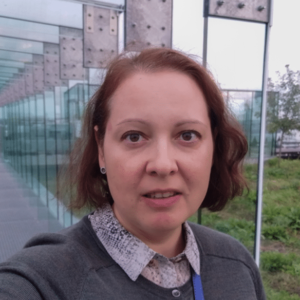
Olga Mrinska is Associate Director, Senior Evaluation Manager at the European Bank for Reconstruction and Development in London. Originally from Ukraine, her previous roles include: lecturer at the Taras Shevchenko National University in Kyiv; Deputy Head of the Ukraine Programme for the UK Department for International Development (DFID); Research Director at the Institute for Public Policy Research North (ippr north); and consultancy for the World Bank, European Commission and other international organisations. Olga is co-founder of Urban Space 500 – a social enterprise in Kyiv where profits are directed towards urban development projects.
Olga’s research interests include: regional economic policy and governance; urban development; innovativeness and competitiveness of cities and regions; multi-national comparative regional studies; and impact investment in transition economies.
Getting started on your first academic CV can seem a daunting task, particularly as a PhD student or Early Career Researcher, but fear not – this session provides tips and insights to write a winning academic CV.
Keywords: career development, career planning, job application, academic job, CV
Presenter: Henrik Halkier, Aalborg University, Denmark
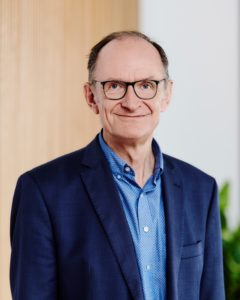
Henrik Halkier is Professor of tourism and regional development and Dean of the Faculty of Humanities at Aalborg University, Denmark. He has published on regional development policy, tourist destination development, place branding and food tourism. He has taught and supervised in International and Cross-cultural Studies, and been engaged in triple-helix collaboration in regional and tourism development on an ongoing basis. In between, he has contributed to leadership at Aalborg University and beyond. His blog on life in Denmark under corona seems to be written by his cat and appears on the Nordic Horizons Facebook group.
Chair: Sabine Dörry, LISER, Luxembourg
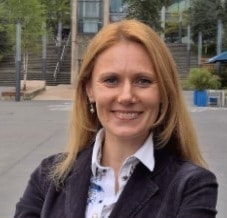
Sabine is the RSA Ambassador to Luxembourg. She is a Senior Research Fellow at the Luxembourg Institute of Socio-Economic Research (LISER) and an Adjunct Associate Professor at the University of Luxembourg. She is a GSO Leadership Fellow Alumni and previously held a Marie Curie Research Fellowship at the University of Oxford. Sabine is a board member of the FINGEO Network, the Global Network on Financial Geography, where she is also editor for the network’s working paper series. Sabine’s research is mainly concerned with the financial sector, where she focuses on issues of fintech and the interaction between sustainable finance and sustainable regional development.
The dream team is back and following on from the popular session on “How to get your first academic job” the presenter now shares his rich experience on how to win in job interviews. He highlights the common components of the academic interview, addresses the phone and the on-site interview and shares his tips as a seasoned search committee member.
Keywords: career development, career planning, job application, academic job, job interview
Presenter: Martin Jones, Staffordshire University, UK
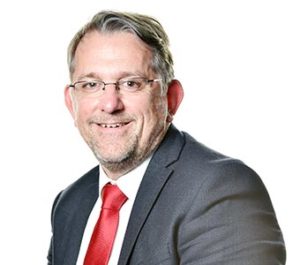
Martin (Deputy Vice Chancellor and Professor of Human Geography, Staffordshire University) works at Staffordshire University, with responsibility for Research, Academic and Strategic Planning, the Student Experience, and SU Academy Trust. Martin joined the University in May 2017 from the Department of Geography at the University of Sheffield, where he was Director of the White Rose Social Science Doctoral Training Centre and Professor of Urban and Regional Political Economy.
Prior to this Martin worked at Aberystwyth University as the Pro Vice-Chancellor for Research and Co-Director of the Wales Institute of Social and Economic Research, Data and Methods (WISERD).
Martin is an interdisciplinary researcher, working in the broad area of society and space and specifically on the interface between economic and political geography through economic development and governance. His current research, funded through WISERD and the ESRC, is looking at city-region building and the Foundational Economy in Wales and England. He has been a member of the Regional Studies Association for 25 years and is the originator and co-editor of the journal Territorial, Politics, Governance.
During his career Martin has been a member of some 300+ interview panels, chairing some 150 of these, appointing to a wide range of teaching, research and professional services positions, and ranging from those in the early stages of their careers to executive postholders.
Chair: Stefania Fiorentino, University College London, UK
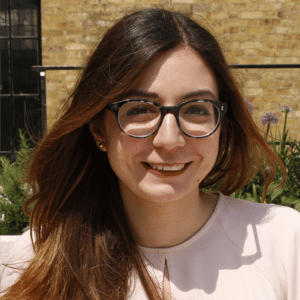
Stefania Fiorentino has recently joined the University of Cambridge, Land Economy department as senior teaching associate in Planning Growth and Urban Regeneration. Prior to that she has worked at London South Bank University (LSBU) and at University College London (UCL) and taught modules in spatial planning, local economic development and urban regeneration. She currently keeps contributing to the Bartlett School of Planning (UCL) as visiting lecturer. Her research interest focusses on ways to reconcile planning practices and local economic development for more inclusive and resilient regeneration strategies. She holds a PhD in Planning from the Bartlett School of Planning (UCL) where she has investigated the new geography of innovation in Italy, including the underlining socio-economic dynamics and the governance implications of the new workspaces (e.g. co-working spaces, maker spaces, start-up incubators) and entrepreneurial ecosystems.
In this session, the presenter shares 11 practical tips on how to promote your academic profile and publications and here particularly how to promote your journal articles to increase readership, downloads and impact. He also highlights support available by the publisher.
Keywords: career development, publication, journal article, impact, downloads, SEO, title, abstract, keywords, video abstract, press release, science communication, altmetric, academic skills, professional development
Presenter: Mark Robinson, Taylor & Francis, UK
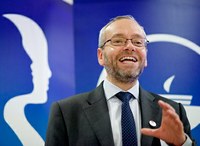
Mark Robinson is Communications Manager at Taylor & Francis Group in Oxford, UK. Having previously worked for Springer, Mark has over 18 years’ experience in marketing and communications for academic publishing. In his current role, which includes the Taylor & Francis Author Services programme, Mark’s goal is to help researchers maximise the impact of their work.
Chair: Mia Bennett, The University of Hong Kong
Research Methods
This session was organised by the RSA’s Women’s Network and focused on the nature of the changes introduced for qualitative research during COVID lockdown. The presenter shares her experiences of preparation, running, and data management of virtual focus groups and discusses the value and challenges of moving qualitative research online.
Keywords: qualitative research method, online focus groups, data management, academic skills, professional development
Presenter: Lucy Natarajan, University College London, UK
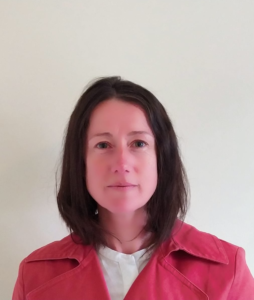
Lucy Natarajan is a Senior Teaching Fellow at the Bartlett School of Planning, University College London. Her current research work focuses on public participation in spatial planning. Previously, she has run major academic research projects, and policy research programmes for the UK government, the UK’s Royal Town Planning Institute, and the Commonwealth Association of Planners.
Chair: Stefania Fiorentino, University College London, UK
This webinar aims to introduce participants to the advantages of using USPTO patent data for research on collaboration networks in cities and regions of developing countries, especially in Latin America. In such regions, the scarcity of sub-nationally comparable data and the absence of a regional office that centralizes patents from different countries make the use of USPTO data particularly interesting.
Keywords: data, patent data, research, networks, Latin America
Presenter: Pablo Galaso, University of the Republic, Uruguay
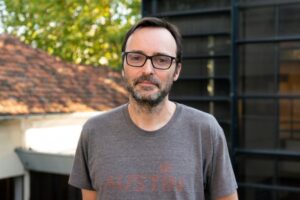
Pablo Galaso is an associate professor at the Institute of Economics of the University of the Republic (Uruguay), where he coordinates the Research Group on Development Studies. He is a Level I researcher in the National System of Researchers of Uruguay. His research interests focus on territorial development studies, innovation and social network analysis. He has published several academic papers, chapters and books on these topics. He has participated in and directed several competitive research projects and collaborated in agreements with national and international institutions. Since 2023, he is co-coordinator of the Research Network “Knowledge, Innovation and Regional Development in South America (KIRDSA)” of the Regional Studies Association.
Chair: Andrea Belmartino, Gran Sasso Science Institute, Italy
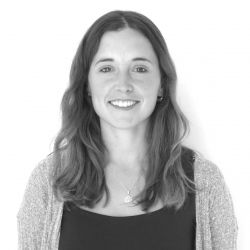
Andrea Belmartino is a PhD fellow in Urban Studies and Regional Science at Gran Sasso Science Institute (GSSI) in L’Aquila (Italy). She holds a MA in Economics from Universidad Nacional de La Plata (Argentina). She was a research assistant at Universidad Nacional de Mar del Plata (Argentina). Her current research interests are related to regional capabilities to foster the green transition. In addition, she is especially interested in the sustainability challenges and opportunities for Latin American economies. Since 2023, she has been co-coordinator of the Regional Studies Association’s Research Network “Knowledge, Innovation and Regional Development in South America (KIRDSA)”.
In this webinar, we delve into the transformative potential of these data streams. Through compelling examples, we unveil how these sources bolster policy-oriented research. Furthermore, this webinar will engage in a critical reflection on new forms of data, their potentials, and their restrictions, examining how, when compared to traditional data formats, they augment the development of verified evidence for informed policymaking and pragmatic implementation.
Keywords: data, data science, mobility patterns, data security, spatial
Presenter: Elisabetta Pietrostefani, University of Liverpool, UK
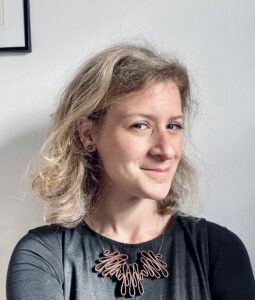
Elisabetta is a Lecturer in Geographic Data Science at the Geographic Data Science Lab at the University of Liverpool. As a quantitative urban geographer, she is interested in applying data and technologies to improve the understanding of urban development and inequalities. Currently, she is interested in combining spatial survey data collected with satellite imagery measuring the degree of damage of buildings, to investigate of disasters on inequality indicators. Her research exploits both traditional and new forms of data as well as both spatial econometrics and geospatial artificial intelligence. Elisabetta is a Visiting Fellow at the London School of Economics where she completed her PhD. She has consulted for international agencies such as the OECD, UN-Habitat and UNHCR.
Chair: Caitlin Robinson, University of Bristol, UK
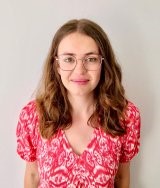
Caitlin Robinson is an Research Fellow and Proleptic Lecturer in the School of Geographical Science at University of Bristol. Caitlin is currently leading a UKRI Future Leaders Fellowship project mapping ambient vulnerabilities in UK cities. From 2020 until 2022, Caitlin was a Lecturer in Urban Analytics in the Department of Geography and Planning at University of Liverpool. Previously, Caitlin was a post-doctoral researcher at the Centre for Urban and Regional Development Studies at Newcastle University. Here she worked on the Alan Turing Institute funded ‘Spatial Inequality in the Smart City’ project. This project explored the social and spatial inequalities embedded in sensor infrastructure increasingly deployed in cities.
This webinar is designed to assist early/mid-career academic and non-academic researchers seeking to enhance their career development by adapting to new and innovative ways of working in international multidisciplinary environments. Drawing on case studies by experienced researchers the webinar aims to improve the understanding of, and responses to, the multifaceted challenges involved in managing an ever more complex research process by bridging what are often deep-seated disciplinary and cultural divides.
This webinar presents insights from the recently published Edward Elgar guide: How to manage international multidisciplinary research projects. The guide can be used to support researchers through the five interlinked stages in the international multidisciplinary research process:
▪ securing funding and meeting funders’ requirements
▪ project coordination and management
▪ building an international multidisciplinary research team and managing intra-team communication
▪ research design and methods
▪ engagement with and dissemination across multiple stakeholders, including policymakers.
Keywords: researchers, funding, communication, international multidisciplinary, engagement, policymakers
Presenter: Linda Hantrais, London School of Economics, UK

Professor Linda Hantrais FAcSS is Emerita Professor of European Social Policy in the Department of Politics and International Studies at Loughborough University, and Visiting Professor at the International Inequalities Institute, London. She chairs the UK Academy of Social Sciences’ International Advisory Group. Her research interests span international multidisciplinary comparative research theory, methodology, management and practice with particular reference to public policy and institutional structures, the relationship the relationship between socio-demographic change and policy responses, and the evidence base for policy. Her recent work has focussed on the implications of Brexit and the Covid-19 pandemic for EU and UK social policy, higher education and research. She has published extensively on all these topics and has organised related training events in the UK and in Europe.
Chair and Speaker: Dave Filipović-Carter, Education-Training Ltd, UK

Chair:Dr Dave Filipović-Carter has a background in Public International Law research and has been teaching law subjects for over 25 years, currently with the Open University. However, his main career is as Director of Education-Training Ltd, which provides high-quality, bespoke international training and facilitation, both online and face-to-face, to researchers at all levels, across all disciplines. Dave has been involved in numerous projects for the SRA and AcSS, the British Council, Epigeum, Vitae, the Open Society Foundation (HESP), AHRC, ESRC, EPSRC, NERC, C-DICE, and individual universities across the UK and throughout the wider Europe. During the pandemic, he focussed on providing effective online delivery of training programmes.
This webinar is an incisive introduction to the network paradigm crucial to understanding economic development. It introduces core concepts and instruments essential for network data scrutiny, encompassing centrality measures, network topographies, and network dynamics. Moreover, it offers guidance on using R for conducting social network analyses. The course delves into that interconnected landscape, shifting the analytical spotlight onto the intricate interdependencies that bind actors, organizations, and regions.
Keywords: data, RStats, networks, analysis, complexity, actors
Presenter: Tom Broekel, University of Stavanger, Norway
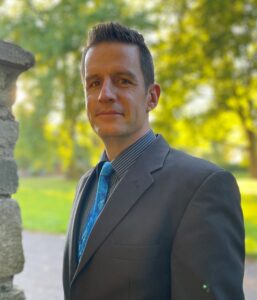
Tom Broekel is a Professor in Regional Innovation at the University of Stavanger Business School, Norway. He earned his Masters and PhD in Economics from Jena, and has since held positions in Utrecht, Hannover, and Stavanger. Tom’s research delves into the nexus of innovation and regional development, recently exploring the influence of regional news and narratives within this sphere. His methodological expertise is broad, encompassing advanced quantitative empirical methods such as social network analysis, nonparametric efficiency estimations, regression analyses, and text analysis, all aimed at enhancing the understanding of economic development and informing effective policy.
Chair: Zsófi Zádor, NetSI, Northeastern University London, United Kingdom
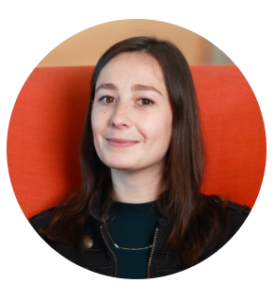
Zsófi Zádor is a Postdoctoral Research Assistant in the Network Science Institute at Northeastern University London. Zsófi has submitted her PhD at the University of Greenwich on the topic of trade networks. Her research interests include economic networks and inequality in human dynamics. Her recent interest is understanding gendered differences in mobility.
This webinar will introduce engaged scholarship as a method for the study of place, providing examples from the Institute of Place Management’s projects and expertise. Engaged scholarship is a participatory style of research for obtaining the understanding of a complex problem in its particular context (Van de Ven, 2007) and typically from those key stakeholders affected by the issue being studied. Its origins can be traced to the work of Boyer (1990), who argued that scholarly activities need to move beyond the conduct of original research (scholarship of discovery) to form a dynamic definition of scholarship that helps to build bridges between theory and practice (scholarship of integration); incorporates scientific discovery with problem-solving that assists individuals and communities (scholarship of application); and promotes educational progress (scholarship of teaching) (also see Paynter, 2014).
Keywords: Place, Engaged scholarship; research; towns
Speaker
Nikos Ntounis, Manchester Metropolitan University, United Kingdom
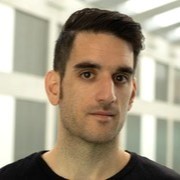
Nikos Ntounis is a Senior Lecturer in Marketing at Manchester Metropolitan University, UK, and Researcher at the Institute of Place Management. His research focuses on the management of places with emphasis on retailing and footfall, and on alternative approaches to place branding, placemaking, governance and leadership within the urban environment, with a particular emphasis on squatted areas and pseudo-public spaces. He is the Managing Editor of the Journal of Place Management and Development.
Chair
Jenny Kanellopoulou, Manchester Law School, Manchester Metropolitan University, United Kingdom
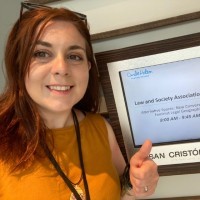
Jenny Kanellopoulou is a Senior Lecturer in Law, Culture, and Place at Manchester Law School, Manchester Metropolitan University and a Fellow at the Institute of Place Management. Her research focuses on the connections between law and place with particular emphasis on alternative and popular forms of cultural participation. She has been leading panels at international conferences on these topics, seeking to flesh out new identities and priorities for the study of law and place. She has held a British Academy Award on the study of autonomous urban zones, and edited a Special Issue on Law and Place for the Journal of Place Management and Development,
Grants and Funding
Are you thinking of applying for a research grant and wondered what makes a winning grant application? In this session, two successful grant applicants share their top tips, insights and keys for writing a successful research grant application.
More details on RSA Research Funding Schemes can be found at www.regionalstudies.org/funding-awards/.
Keywords: academic writing, research funding, grant application, academic skills, professional development
Presenters: Heike Mayer, University of Bern, Switzerland and Davide Luca, University of Cambridge, UK

Heike Mayer is professor of economic geography at the University of Bern in Switzerland. Her research is in local and regional economic development with a focus on dynamics of innovation and entrepreneurship, place making and sustainability. Heike started her academic career in the United States, where she completed a Ph.D. in Urban Studies (Portland State University) and held a tenured professorship at Virginia Tech University. She is author of the book Entrepreneurship and Innovation in Second Tier Regions (Edward Elgar, Cheltenham), co-author of Small Town Sustainability (Birkhäuser Press, Basel), and co-author of The Political Economy of Capital Cities (Routledge, London).
David Luca
He is also a Fellow at Fitzwilliam College, a Visiting Fellow at the LSE International Inequalities Institute, an Associate at the LSE Middle East Centre, and an Associate Researcher at the University of Turin.
He holds a Ph.D. from the London School of Economics, and his past appointments include the Gran Sasso Science Institute and Harvard Kennedy School of Government.
Chair: Sally Hardy, Regional Studies Association, UK

Sally Hardy began her career at the Economic and Social Research Council where she worked as a Scientific Officer in the Industry and Employment Committee dispensing funding to UK based social science academics. Sally moved to the Regional Studies Association where she has been CEO for just over 30 years. She has developed the organisation from a small, UK focused organisation into a global Association with an international footprint. Sally has become an advocate on publishing issues for the learned society sector speaking regularly at national conferences and events. She has advocated on different aspects of Open Access – for journals as well as for monographs and also around copy right reform and educational exceptions. She speaks on publishing practice and particularly on how to grow impact from publishing activity and on issues of learned society strategy.
In the session the chair of the RSA Research Committee shares his tips that will help you to prepare successfully and to write a winning grant application.
Keywords: academic writing, research funding, grant application, academic skills, professional development
Presenter: Ron Boschma, Utrecht University, The Netherlands
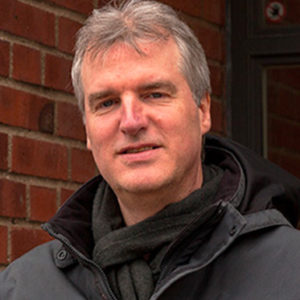
Ron Boschma is a Full Professor in Regional Economics at the Department of Human Geography and Spatial Planning at Utrecht University. He also holds a Chair in Innovation Studies at the UiS Business School, Stavanger Centre for Innovation Research, at Stavanger University. He has widely published in international journals on Evolutionary Economic Geography, the spatial evolution of industries, regional systems of innovation, the structure and evolution of networks, agglomeration externalities and regional growth.
Chair: Anne-Marie Jeannet. University of Milan, Italy
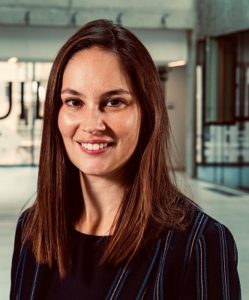
Anne-Marie Jeannet is associate professor of sociology at the University of Milan and a research affiliate of the Dondena Centre for Social Dynamics and Public Policy (Bocconi University) and the Migration Policy Centre (EUI). She studies study how changes in the social structure, such as deindustrialization or immigration, alter political life. She is particularly interested in how the public perceives these social phenomena and the role of the socio-political context in shaping the public’s response to these occurrences. Anne-Marie is currently the principal investigator of “Deindustrializing Societies and the Political Consequences” (DESPO), a project funded by an ERC Starting Grant (2020-2025). Her research has also previously been funded by the Regional Studies Association and the Swiss National Science Foundation.
Congratulations, you won a research grant but what next? This session presents top tips from a seasoned research grant holder highlighting aspects of managing large grants including finance, people and HR, the grant’s infrastructure needs, day-to-day tasks, potential reporting requirements and managing beyond the current grant.
Keywords: research funding, academic skills, project management, grant reporting, people management, grant management, career progressing, professional development
Presenter: Dieter F. Kogler, University College Dublin, Ireland

Dr. Dieter F. Kogler is the Academic Director of the UCD Spatial Dynamics Lab and an Associate Prof. in Economic Geography at the School of Architecture, Planning and Environmental Policy at University College Dublin. His research focus is on the geography of innovation and evolutionary economic geography, with particular emphasis on knowledge production and diffusion, and processes related to technological change, innovation, and economic growth. He is currently an ERC Starter Grant holder with the following project title: Technology Evolution in Regional Economies (TechEvo). In parallel he also leads an SFI funded Science Policy Research Programme project on Science-Technology Spaces (SciTechSpace). Dieter is an Editor of Regional Studies and an Editorial Board member of the Cambridge Journal of Regions, Economy and Society. His career path combines professional and research experience acquired in Europe, the United States, and Canada within a variety of areas pertaining to the spatial analysis of socio-economic phenomena.
Chair: Ilaria Mariotti, Politecnico di Milano, Italy
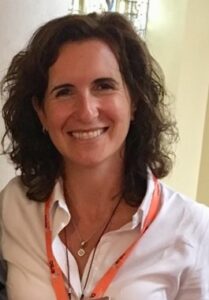
Ilaria Mariotti is Associate Professor of Urban and Regional Economics at DAStU, Politecnico di Milano (IT). She achieved a M.Sc. degree in Regional Studies at the University of Reading (UK), a Ph.D in Economic Geography at the University of Groningen (NL) and a Ph.D in Transport Economics at the Università degli Studi di Genova (IT). She is member of the Urban Planning, Design and Policy Ph.D Programme at Politecnico di Milano. Her main research interest concerns: firm location, industrial districts and clusters; new working spaces and their effects on the users and urban context. She is Chair of the Cost Action 18214 “The Geography of New Working Spaces and the Impact on the Periphery” (2019-2023), and Project coordinator for the Politecnico di Milano team of the CORAL “Exploring the impacts of collaborative workspaces in rural and peripheral areas in the EU” Project, Horizon 2020 – Marie Curie -ITN-2020 (2021-2024). Ilaria is one of the RSA’s current Small Grant Scheme on Pandemics, Cities, Regions & Industry Grant Holders: The growth of remote working during the Covid-19 pandemic and the renewed role of coworking spaces in peripheral areas.
Winning research funding is the aim of many researchers but the complexities of managing a research grant and the research project can be challenging. This session is designed for researchers in their late early career and mid-career, the presenter will share his experiences and learnings from managing small and large research grants and funded research projects with a particular focus on four key areas: project setup, managing money, managing people, and managing research outputs.
Keywords: research funding, academic skills, project management, grant reporting, people management, grant management, career progressing, professional development, managing staff
Presenter: Dariusz Wójcik, Oxford University, UK
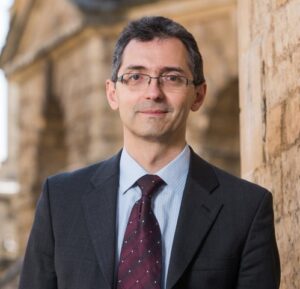
Dariusz Wójcik is an economic geographer, specializing in financial geography. He has published six books and over one hundred articles and book chapters in leading journals and edited volumes, in geography, financial economics, political economy, and sustainability. He has been awarded 15 grants with a total value of over £3.6 million, funded by organisations in the UK, EU, China and Australia. His contribution to research has been recognized by nominations to the editorial boards of several journals, including Economic Geography, the Journal of Economic Geography, Environment and Planning A: Economy and Space, and Journal of Banking, Finance and Sustainable Development. He held visiting appointments at universities in Beijing, Hong Kong, Singapore, and Sydney. In 2015 he chaired the Fourth Global Conference on Economic Geography, which gathered over 670 delegates from more than 60 countries, and is a member of the Global Conference on Economic Geography Committee. He is also the founder and inaugural chair of the Global Network on Financial Geography, a research network with over 800 members all over the world, organising conferences, seminars, summer schools, a working paper series and other activities dedicated to financial geography. Beyond academia he has applied his research to influence financial management, corporate governance, and policies at public and private institutions. His research has been reported in the China Daily, Financial Times, Financial News, the Sunday Times, Forbes, RTÉ Ireland and the BBC World Service. Financial Times recently referred to his work with the words:
“Now it is the turn of geographers” (John Authers, FT, 20 August 2015, page 28)
Dariusz has a Master’s Degree in Geography from Jagiellonian University (1997), Cracow, a Master’s Degree in Economics from the Cracow University of Economics (1996), and an MSc in Finance and Banking from Stockholm University (1996). He came to Oxford in 1998 as a scholar of the Open Society Institute and the Foreign and Commonwealth Office, and was awarded the University Studentship in association with Jesus College for a DPhil, completed in 2003 with a thesis entitled “Corporate Governance and Capital Market Integration in Europe: an Economic Geography Perspective”. From 2003 to 2005 he was a Junior Research Fellow at Jesus College, Oxford and an outside Lecturer at the London School of Economics and Political Science. Between January 2006 and June 2007 he was a Lecturer at the Department of Geography, the University College London. He was appointed a Lecturer at the School of Geography and the Environment and a Fellow of St Peter’s College, Oxford in July 2007. In 2021 Dariusz was awarded a Fellowship of the Academy of Social Sciences.
Chair: Sarah Ayres, University of Bristol, UK

Sarah’s work has explored the complexities of devolution and city governance by exploring the inter-play between formal and informal structures, processes and outcomes. Her research has provided critical insights into how ‘informal’ decision making, i.e. what happens behind closed doors between political elites, has shaped devolution in the UK. This research has examined the impact of so-called ‘informal governance’ on different aspects of mainstream governance theory, including political innovation, democracy, policy effectiveness and the creation of public value. Sarah has been an academic advisor to three successive UK Governments on English devolution and regularly provides written and oral evidence to both Government consultations and House of Commons Inquiries.
Two brilliant researchers and presenters are sharing their rich experiences when managing funded research projects. Presenters stress the importance of a strategic approach to the project and your career development in general. This session is designed for researchers in their late early career and beyond.
Keywords: research funding, academic skills, project management, grant reporting, people management, grant management, career progressing, professional development, managing staff, strategic career development, institutional support
Presenters: Jennifer Clark, The Ohio State University, USA and Henry Yeung, National University of Singapore, Singapore
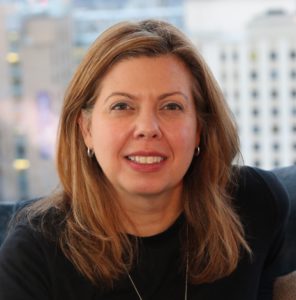
Dr. Clark is a Fellow of the American Association of Geographers (AAG) and a Fellow of the Regional Studies Association. She is the Deputy Editor-in-Chief of the journal Regional Studies and recently served as the Chair of the Economic Geography Specialty Group of the AAG (2017-2019). Dr. Clark earned her Ph.D. from Cornell University, a Master’s degree from the Humphrey School of Public Affairs at the University of Minnesota and a B.A. from Wesleyan University.
Dr. Clark’s most recent book is entitled Uneven Innovation: The Work of Smart Cities (2020), published by Columbia University Press. Her other books include Working Regions: Reconnecting Innovation and Production in the Knowledge Economy (2013), Remaking Regional Economies: Power, Labor, and Firm Strategies in the Knowledge Economy (2007, with Susan Christopherson, winner of the Best Book Award from the Regional Studies Association) and the 3rd edition of Basic Methods of Policy Analysis and Planning (2012, w/ Carl Patton and David Sawicki, a widely adopted text in public policy and urban and regional planning courses). She is also co-editor of Handbook of Manufacturing Industries in the World Economy (2015) and Transitions in Regional Economic Development (2018). In addition, she has written numerous articles and book chapters.
Dr. Clark researches and teaches courses on urban and regional economic development theory, analysis and practice as well as research design and methods. She has provided expert testimony before the U.S. Congress and policy consulting to the Organization for Economic Cooperation and Development and the Canadian, U.K., and U.S. governments. Before joining the Knowlton School, Dr. Clark taught at Cornell University and the Georgia Institute of Technology where she was also the Director of the Center for Urban Innovation.

As an economic geographer by training and one of the world’s leading academic experts in global production networks and the global economy, Professor Yeung’s research interests cover broadly theories and the geography of transnational corporations, East Asian firms, and developmental states. He is the first geographer based in Asia to receive both the 2018 American Association of Geographers Distinguished Scholarship Honors “in recognition of his extraordinary scholarship and leadership in the discipline” and the UK’s Royal Geographical Society Murchison Award 2017 for “pioneering publications in the field of globalisation”. He was also a recipient of the inaugural NUS University Research Recognition Award 2018, NUS Outstanding Researcher Award (2008), and NUS Outstanding University Researcher Award (1998). In July 2014, Professor Yeung served as Principal Investigator of a US$4 million NUS strategic grant to establish the Global Production Networks Centre. He has published 6 monographs and 1 textbook (3 editions), 7 edited books, 105 journal articles, and 50 book chapters. His most recent books are Interconnected Worlds: Global Electronics and Production Networks in East Asia (Innovation and Technology in the World Economy Series, Stanford University Press, forthcoming June 2022), Strategic Coupling: East Asian Industrial Transformation in the New Global Economy (Cornell Studies in Political Economy Series, Cornell University Press, 2016), and Global Production Networks: Theorizing Economic Development in an Interconnected World (with Neil Coe, Oxford University Press, 2015). Professor Yeung is frequently invited to speak at international conferences, workshops, and symposiums. He has given invited presentations to major policy makers, such as Managing Director of International Monetary Fund (2017), DG REGIO of the European Commission (2018), and Commissioner of the Incheon Free Economic Zone in South Korea (2021). Within academia, Professor Yeung is among the top 20 most cited geographers in a recent November 2020 study of top 2% of world scientists, led by Stanford’s John Ioannidis, in 22 scientific fields and 176 sub-fields. His work has been cited by over 4,500 publications in Web of Science and over 22,500 times on Google Scholar. For two decades since 2001, Professor Yeung has been editor of two top journals in Geography – Economic Geography and Environment and Planning A. He is also past editor of Review of International Political Economy (2004-2013) and serves on the editorial boards of 19 other journals.
Chair: Sally Hardy, Regional Studies Association, UK

Sally Hardy began her career at the Economic and Social Research Council where she worked as a Scientific Officer in the Industry and Employment Committee dispensing funding to UK based social science academics. Sally moved to the Regional Studies Association where she has been CEO for just over 30 years. She has developed the organisation from a small, UK focused organisation into a global Association with an international footprint. Sally has become an advocate on publishing issues for the learned society sector speaking regularly at national conferences and events. She has advocated on different aspects of Open Access – for journals as well as for monographs and also around copy right reform and educational exceptions. She speaks on publishing practice and particularly on how to grow impact from publishing activity and on issues of learned society strategy.
Open Access (OA) is on the rise, with continued growth in both the number of articles, and the number of venues to support OA publication. This growth has been supported by the increased proliferation of funder and institutional mandates. Researchers have more choice than ever before, but they must also make sure that they comply with the conditions of their grant funding, in an environment which is becoming ever more complex.
Keywords: research funding, academic skills, open access, publishing, Plan S
Presenter: Victoria Gardner, Taylor & Francis, UK
Victoria Gardner is Director of Policy at Taylor & Francis. She delivers the organisation’s policy and public affairs strategy, including internal and external advocacy, horizon scanning, and strategic planning. She advises on responses to government consultation and sits on the Publishers Association Public Affairs Committee and STM’s Policy and Advocacy committee. She has experience of working in a variety of functions including journal management, Open Access, and Technology. Previous roles include Director of Open Access (OA) Operations and Policy, working cross-departmentally to improve infrastructure, workflow and services around OA and Head of Researcher Services Development where she worked part of a cross functional team focused on product development (specifically improving services around submission to publication, with emphasis on OA). She also spent number of years working on a subject team manging a portfolio of titles, which included a secondment to the Johannesburg office.
Chair: Sally Hardy, Regional Studies Association, UK
This session provides an introduction to the RSA’s Early Career Grant Scheme but will also highlight useful tips that apply to other non-RSA grant schemes.
There are presentations by a member of the RSA Research Committee and two early career grant holders sharing their experiences and tips. More details on the grant scheme and the current submission deadline can be found at www.regionalstudies.org/funding/early-career-grant-scheme/.
Keywords: research funding, academic skills, early career grant scheme, academic writing, grant application, professional development
Presenters: Stuart Dawley, University of Newcastle, UK, I-Chun Catherine Chang, Macalester College, USA and Jacopo Canello, University of Groningen, The Netherlands
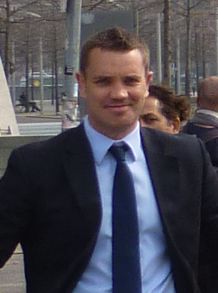
Dr Stuart Dawley is a Senior Lecturer in Economic Geography in the Centre for Urban and Regional Development Studies (CURDS) at Newcastle University. His current research focuses upon the evolution of local and regional economies, particularly understanding the dynamics of path creation and development as part of the energy transition. More broadly, his research previously connected to an array of themes including regional competitiveness, sector studies, labour markets and migration. This includes work undertaken for international, national and regional agencies and organisations, including the European Commission, Economic and Social Research Council (ESRC), Dept. for Communities and Local Government (DCLG; ) and Dept. for Business, Innovation and Skills (BIS; UK).
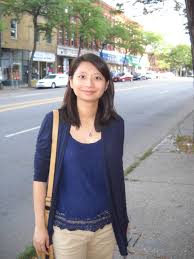
I-Chun Catherine Chang is an urban and economic geographer. She is Assistant Professor of Geography at Macalester College in Minnesota, US. Her research interests include global urbanism, urban sustainability, policy mobilities and Asia. Catherine’s scholarship centers on the political economy of urban sustainability initiatives, seeking both to contextualize how the initiatives manifest on the ground and to explain how their interconnections shape the global circulation of sustainability planning knowledge and practices. In works related to her doctoral dissertation, Catherine focused on two flagship Chinese eco-cities to examine their spatio-temporal variegations and trans-local mobilities across Shanghai, Tianjin, London and Singapore. Drawing from more recent field research, she also explored the uneven impact of eco-city development on relocated villagers and new eco-city residents. Catherine’s current research investigates how emergent green financing models affect local urban sustainability practices with a special focus on cities in Taiwan. Catherine’s work has appeared in the Environment and Planning A, Journal of Urban Technology, Regional Studies, Urban Studies, and several edited volumes. Catherine is a recipient of RSA Early Career Grant in 2018. She currently serves as the co-chair of the Asian Geography Specialty Group of the American Association of Geographers and an editorial board member of the Annals of the American Association of Geographers.
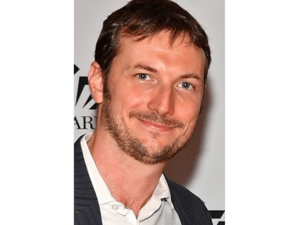
Jacopo Canello is an Assistant Professor of Economic Geography at the Department of Global Economics and Business, University of Groningen. He holds a Ph.D. from the University of Queensland in Australia and a M.Sc. from Trinity College Dublin. He has previously worked as Research Economist for the Italian Ministry of Economy and Finance and as Assistant Professor at UNC Charlotte in the US.
His main research interests are Global Value Chains, Industrial Districts and Efficiency and Productivity Analysis. He is currently studying how micro and small manufacturing firms compete in the global economy, focusing on the dynamics occurring in the domestic regions in which these firms are located. Other important strands of his work are related to topics such as regional resilience, production relocation and reshoring. His research has been funded by the Regional Studies Association, the Australian Ministry of Education and the Irish policy advisory board for enterprise, trade, science, technology and innovation.
Chair: Sally Hardy, RSA
Is your research policy relevant and do you wish to reach a global audience with your results then you might be interested in the RSA’s Policy Expo grant scheme. This session introduces the purpose and focus of this grant scheme and gives tips how to write a project for policymaker audiences and a successful application.
More details on the grant scheme and the current submission deadline can be found at
www.regionalstudies.org/funding/policy-expo-grant-scheme.
More details on the MeRSA Grant Scheme, click here.
More details on the FeRSA Grant Scheme, click here.
Keywords: research funding, academic skills, policymaker, impact, science communication, academic writing, grant application, professional development
Presenters: Phil Tomlinson, University of Bath, UK and Neil Lee, London School of Economics, UK
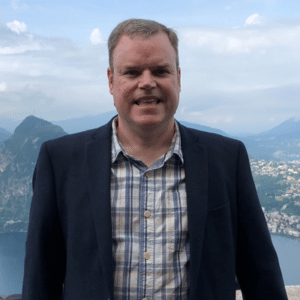
Phil Tomlinson is a Professor of Industrial Strategy in the School of Management, at the University of Bath. He has published over 60 articles in leading academic journals, books and book chapters, and consultancy reports. He is the Deputy Director of the Centre for Governance, Regulation & Industrial Strategy (CGR&IS) and he also works closely with the University of Bath’s Institute for Policy Research (IPR). His research has been received by the Department of Business, Energy and Industrial Strategy (BEIS), Department for Transport, NESTA, Innovate UK, The TUC, Industry Trade Associations and other business and regional organisations. He is a member of the Manufacturing Commission of All Parliamentary Manufacturing Group Enquiry on Local Industrial Strategies and he has given other presentations at the UK Houses of Parliament. He was the PI on the first RSA Policy Expo entitled ‘Revitalising Lagging Regions: Smart Specialisation and Industry 4.0’, and is currently a CI on a £1.5 million European Regional Development Fund (ERDF) grant to establish two business acceleration hubs (digital and engineering) in the South West of England. He was an invited chair and speaker at the EU Commission (Joint Research Centre ) 2018 Smarter Conference on Smart Specialisation and Territorial Development in Seville, and at the EU Commission’s European Week of Regions and Cities 2018. Locally, he has been a member of Swindon and Wiltshire LEP’s Industrial Strategy Independent Review Panel, and he has recently joined the West of England Combined Authority’s Skills Advisory Panel.

Neil Lee is a Professor of Economic Geography at the London School of Economics. His work uses econometric methodologies to investigate issues closely related to public policy, and his recent studies have included studies on whether high-technology growth benefits low-skilled workers, inclusive growth, and new forms of innovation policy. Before joining academia, he was head of the Socio-Economic Centre at the Work Foundation, a think-tank. He has provided research and expert advice for organisations including the OECD, World Bank, European Commission, various UK government departments, the JRF, Power to Change, and the Resolution Foundation.
Chair: Sally Hardy, Regional Studies Association, UK
This session covers data management plans to research ethics, there is an ever-growing body of requirements when applying for, and successfully designing and implementing research grants and projects. There are many excellent resources available to support you in your research journey and make your research stronger and more competitive for external funding. Learn productive ways to work with your institution’s research office and be ready for success in the next grant competition cycle.
Keywords: research grants, resources, professional development, external funding
Presenter: Betsy Donald, Queen’s University, Canada
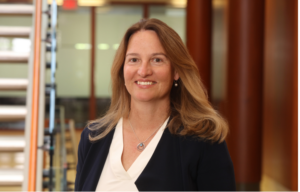
Dr. Betsy Donald is Associate Vice Principal of Research at Queen’s University and a Professor in Geography. She is an active and award-winning researcher funded by the Social Sciences and Humanities Research Council of Canada (SSHRC). She works in the field of economic geography with particular focus on innovation and regional economic development, urban governance, mobility, and sustainable food systems. She has degrees from McGill (B.A. History), York (M.E.S. Environmental Studies) and the University of Toronto (M.Sc.Pl. Planning, Ph.D. Geography). Dr. Donald has published widely and, in such journals, as Regional Studies, Journal of Economic Geography, Urban Studies, Economic Geography, and Environment and Planning A. She is currently an editor of the Cambridge Journal of Regions, Economy, and Society.
Chair: Dieter Kogler, University College Dublin, Ireland

Dr. Dieter F. Kogler is an Associate Professor in Economic Geography at the School of Architecture, Planning & Environmental Policy, and the Academic Director of the Spatial Dynamics Lab at University College Dublin. His research focus is on the geography of innovation and evolutionary economic geography, with particular emphasis on knowledge production and diffusion, and processes related to technological change, innovation, and economic growth.
Networking and Network Management
The session presents insights on why and how to build an international research network, who to include in the network, how to manage the network and practicalities and realities to keep in mind.
Keywords: research network, networking, international, professional development
Presenter: Mark Tewdwr-Jones, UCL, UK
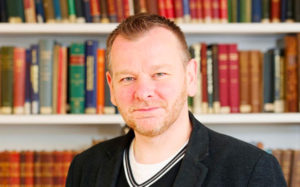
Mark is UCL Bartlett Professor of Cities and Regions at the Centre for Advanced Spatial Analysis, University College London. He was previously Professor of Town Planning at Newcastle University (2012-20), and Professor of Spatial Planning and Governance at UCL (2001-12).
Mark is a recognised authority and has written extensively on place innovation, urban and regional planning, urban history, digital place connectivity, the politics and governance of the city, public engagement, and the use of land.
The author of 17 books and over 75 international journal papers, he has won £25m in research income, levered in £61m for university initiatives, and supervised successfully 28 PhD students.
He has given over 300 talks worldwide on cities and planning issues
& has advised governments across the globe on city development. He has been a Visiting Professor at Berkeley California, Hong Kong, Shanghai, UNSW Sydney, Western Sydney, Guadalajara, Pretoria, Malta, Nijmegen, & Dublin.
He is the founding Director of Newcastle City Futures, a successful civic ideas factory housed at Newcastle University 2014-19 linking research to societal & business needs that generated collaborative & innovative ideas for all sectors across the city and partnered 200 organisations. It levered in £33m for partners, facilitated the shaping & delivery of 35 innovation projects, & engaged 155k people.
Mark chairs the Connected Places Catapult Research Panel & is Chair of the Regional Studies Association 2017-20, having been RSA Vice Chair for Publications 2012-15. He was a member of the RTPI General Assembly 2006-8, the UK Chief Scientist’s Land Use Futures Foresight project where he was seconded to the Government Office for Science 2008-11, is a former advisor to UK Government ministries DEFRA and MHCLG, & served on the NICE NHS spatial planning & health programme in 2009-10. He advised the UK Chief Scientist’s Future of Cities Foresight project 2013-16. For his contribution to cities & planning, he was elected an Academician of the Academy of Social Sciences in 2011, awarded fellowship of the RTPI in 2013 & is the recipient of 4 awards for NCF.
Chair: Marte C.W. Solheim, University of Stavanger Business School, Norway
Navigating Career Success with AESOP YAN and RSA
This webinar series was organised in partnership between the Association of European Planning School’s Young Academics Network (AESOP YAN) and the RSA. Following many years of informal collaboration, we teamed up with the network to develop a webinar series focussing on navigating career success specifically designed for PhD students and early career researchers. As with all RSA webinars, these webinars are free and open to all to attend live and do not require a current membership of either Association. The recording of the webinar is available below or one the AESOP website.
Speakers
Dieter Kogler, University College Dublin, Ireland

Dr. Dieter F. Kogler is the Academic Director of the UCD Spatial Dynamics Lab and an Associate Prof. in Economic Geography at the School of Architecture, Planning and Environmental Policy at University College Dublin. His research focus is on the geography of innovation and evolutionary economic geography, with particular emphasis on knowledge production and diffusion, and processes related to technological change, innovation, and economic growth. He has previously been an ERC Starter Grant holder with the following project title: Technology Evolution in Regional Economies (TechEvo). In parallel he also leads an SFI funded Science Policy Research Programme project on Science-Technology Spaces (SciTechSpace). Dieter is an Editor of Regional Studies and an Editorial Board member of the Cambridge Journal of Regions, Economy and Society. His career path combines professional and research experience acquired in Europe, the United States, and Canada within a variety of areas pertaining to the spatial analysis of socio-economic phenomena.
Paula Prenzel, University of Greifswald, Germany
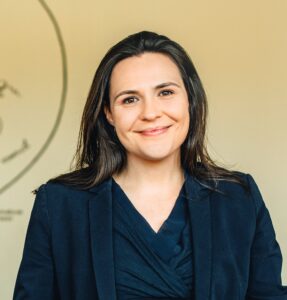
Paula Prenzel is Assistant Professor of Regional Development at the University of Greifswald, Germany. Her research in economic geography engages with consequences of demographic change, diversity and migration for regional development. She is particularly interested in how changes in population size and composition interact with regional disparities and innovation. Paula is a current holder of an RSA Early Career Grant investigating migration during the COVID-19 pandemic. She is also a PI in two projects funded by the German Federal Ministry of Education and Research (BMBF) and a member of the RSA Research Committee.
Ekaterina Shakina, Northumbria University, UK
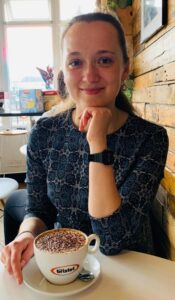
Dr. Ekaterina Shakina is an Assistant Professor in Economics at Northumbria University. Her current research focus is on regional development, labour economics and employability. She is particularly interested in workforce demand pressures in view of informing strategic decision-making of policymakers and other stakeholders regarding future recruitment and skills development initiatives. Having previously worked as a co-investigator of the initial stage of the research project, Ekaterina currently holds the role of principal investigator for the second stage. The project that she leads on is titled “Northumberland Workforce”. It is dedicated to addressing the primary challenges related to retaining the local workforce in the Northumberland county.
Moderators
Daniela Carl, Regional Studies Association, UK
Sila Ceren Varis, AESOP
This webinar series was organised in partnership between the Association of European Planning School’s Young Academics Network (AESOP YAN) and the RSA. Following many years of informal collaboration, we teamed up with the network to develop a webinar series focussing on navigating career success specifically designed for PhD students and early career researchers. As with all RSA webinars, these webinars are free and open to all to attend live and do not require a current membership of either Association. The recording of the webinar is available below or one the AESOP website.
Speakers:
Asma Mehan, Texas Tech University, USA

Dr. Asma Mehan is a researcher, educator, and architect working on the intersection of architectural humanities and critical urban studies. She is an assistant at Texas Tech University Huckabee College of Architecture and the director of the Architectural Humanities and Urbanism Lab (AHU_Lab). She is the author of the books Tehran: From Sacred to Radical (Routledge, 2022) and Kuala Lumpur: Community, Infrastructure, and Urban Inclusivity (Routledge,2020). She has authored numerous articles and essays on critical urban studies, architecture, urban planning, and heritage studies in scholarly books and journals in multiple languages.
Ender Peker, Middle East Technical University, Turkey
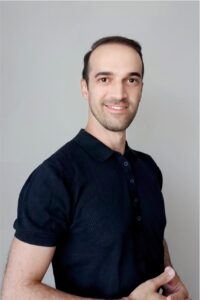
Ender Peker is an urbanist specializing in climate responsive urban design, in particular the ways in which the built environment is co-designed by technical rules, regulations, and codes that seek to order urban life in deference to inhabitants’ socio-ecologic values. Peker holds a PhD in Real Estate and Planning from the University of Reading, UK, and a MSc degree in Urban Design from Middle East Technical University (METU). He completed undergraduate courses in city and regional planning at METU and economics at Anadolu University, Turkey. He has been a visiting scholar at the Joint Centre for Urban Design at Oxford Brookes University and the Department of Planning and Landscape at the University of Manchester.
Diana Morales, Umeå University, Sweden
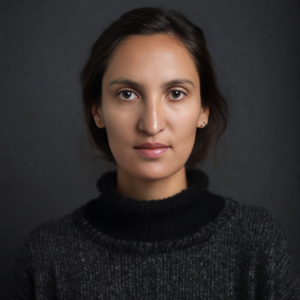
Diana Morales holds a PhD from the Centre for Urban and Regional Development Studies CURDS, Newcastle University (UK), She is also a fellow of the Regional Studies Association (RSA). Her area of expertise lies on economic geography, with emphasis on rural, local and regional development. She is interested in processes of economic geographies, including sustainable transformations, development geographies and diverse economies, and in understanding the geographical processes and results of regional development paths, uneven development and institutions. Theoretically, her point of departure is uneven development, local and regional development theories, and diverse economies. Empirically, her strongest point are compared case studies, and have experience working in Latin America and Europe.
Moderators:
Daniela Carl, Regional Studies Association, UK
Sila Ceren Varis, AESOP
This webinar series was organised in partnership between the Association of European Planning School’s Young Academics Network (AESOP YAN) and the RSA. Following many years of informal collaboration, we teamed up with the network to develop a webinar series focussing on navigating career success specifically designed for PhD students and early career researchers. As with all RSA webinars, these webinars are free and open to all to attend live and do not require a current membership of either Association. The recording of the webinar is available below or one the AESOP website.
Speakers
Cassie Hazell, University of Surrey, UK
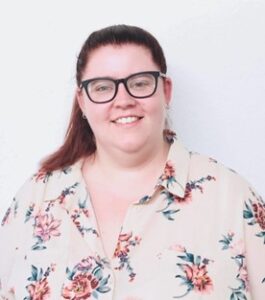
Dr Cassie Hazell is a lecturer in Clinical Psychology at the University of Surrey. She completed her PhD at the University of Sussex on the topic of guided self-help for people distressed by hearing voices. She has since completed postdoctoral positions at the University of Sussex, Sussex Partnership NHS Foundation Trust, Brighton and Sussex Medical School, and the University of Oxford – all in the area of mental health and mostly working on clinical trials. Dr Hazell was the co-lead researcher on the U-DOC project – the largest survey ever conducted on the mental health of PhD students
Charlotte Morris, University of Portsmouth, UK
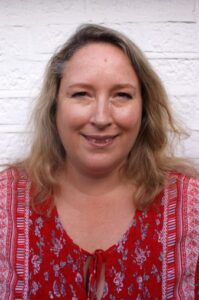
Dr Charlotte Morris is a Senior Lecturer in Education and Sociology at the University of Portsmouth, UK. She has research interests in higher education, relationships, gender, sexuality and intersectional inequalities. She previously taught across Sociology, Education and Gender Studies at the University of Sussex (2014 – 2020) where she completed a PhD Gender Studies in the Department of Sociology in 2014. She has also held posts as Research Fellow with the Centre for Higher Education & Equity Research and as a Researcher in the field of learning and teaching in higher education at Anglia Ruskin University and the University of Brighton. She has led projects in the field of widening participation; undergraduate and postgraduate learning; student disabilities, mental health and wellbeing; student parents and carers and experiences of early career women academics. She leads the Education, Social Justice and Transformation research group at the university and contributes to development sessions for postgraduate students and supervisors, especially in relation to wellbeing.
David Watson, University of Essex, UK
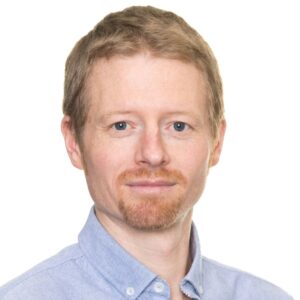
Prior to working at the University of Essex David Watson was an Associate Professor at Norwich Business School from 2017-2023 and worked as a senior research associate on the Work, Learning and Wellbeing evidence programme for the Economic and Social Research Council funded What Works Wellbeing Centre 2015-17. He is an experienced qualitative researcher with training in both quantitative and qualitative methods. He has worked on research projects in a number of settings, including social movements, community organisations and with vulnerable groups in deprived areas. He has experience of working in a number of settings outside academia including local government and the third sector.
Moderators:
Daniela Carl, Regional Studies Association, UK
Rumeysa Ceylan, AESOP
Other Sessions
How can it be that so many clever, competent and capable people can feel that they are just one step away from being exposed as a complete fraud? Despite evidence that they are performing well they can still have that lurking fear that at any moment someone is going to tap them on the shoulder and say “We need to have a chat”. The session explains why high performing people often doubt their abilities and find it hard to enjoy their successes. It also shows the links to perfectionism and self-handicapping strategies such as procrastination, avoidance and over-commitment.
At the end of this session, you will know what the latest psychological research tells us about the imposter syndrome is and how it operates, realise how widespread imposter feelings are and why highly successful people can feel like frauds and be aware of evidence-based strategies that reduce imposter feelings.
Keywords: academia, imposter syndrome, mental health
Presenter: Hugh Kearns, Thinkwell, Australia
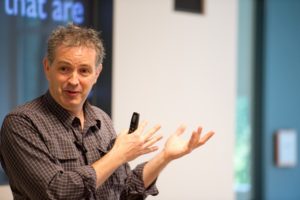
Hugh Kearns is recognised internationally as a public speaker, educator and researcher. He regularly lectures at universities across the world and has recently returned from lecture tours of the UK and the US which included lectures at Oxford, Cambridge, Harvard, Berkeley and Stanford.
His areas of expertise include self-management, positive psychology, work-life balance, learning and creativity. He draws on over twenty five years of experience as a leading training and development professional within the corporate, financial, education and health sectors in Ireland, Scotland, North America, New Zealand and Australia. He has coached individuals, teams and executives in a wide range of organisations in the public and private sectors.
Hugh lectures and researches at Flinders University, Adelaide, Australia. He is widely recognised for his ability to take the latest research in psychology and education and apply it to high-performing people and groups. As a co-author with Maria Gardiner, he has published ten books which are in high demand both in Australia and internationally.
Chair: Camilla Chlebna, University of Oldenburg, Germany
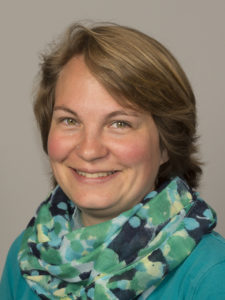
Camilla is a postdoctoral researcher in the working group for Organisation and Innovation within the Institute for Social Sciences at the University of Oldenburg. She is an interdisciplinary researcher cutting across the fields of economic geography, innovation studies, and transition studies with a particular interest for the role and destiny of regions in transition processes towards sustainable development. Since 2018 she participates in the REENEA project on regional energy transitions in German regions. Camilla studied Spatial Planning at the University of Technology in Vienna, Austria and at Oxford Brookes University in the UK. In her PhD, also at Oxford Brookes she compared the development of the wind energy industry in Germany and the UK. Her first postdoc position was in the Economic Geography group at Department for Geography and Regional Research at the University of Vienna in Austria.